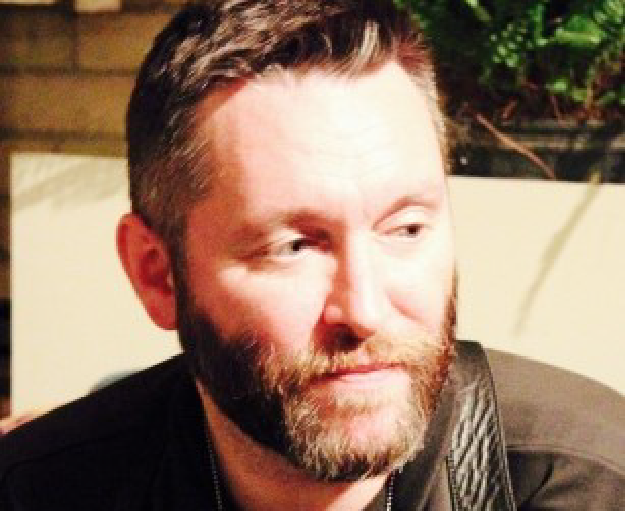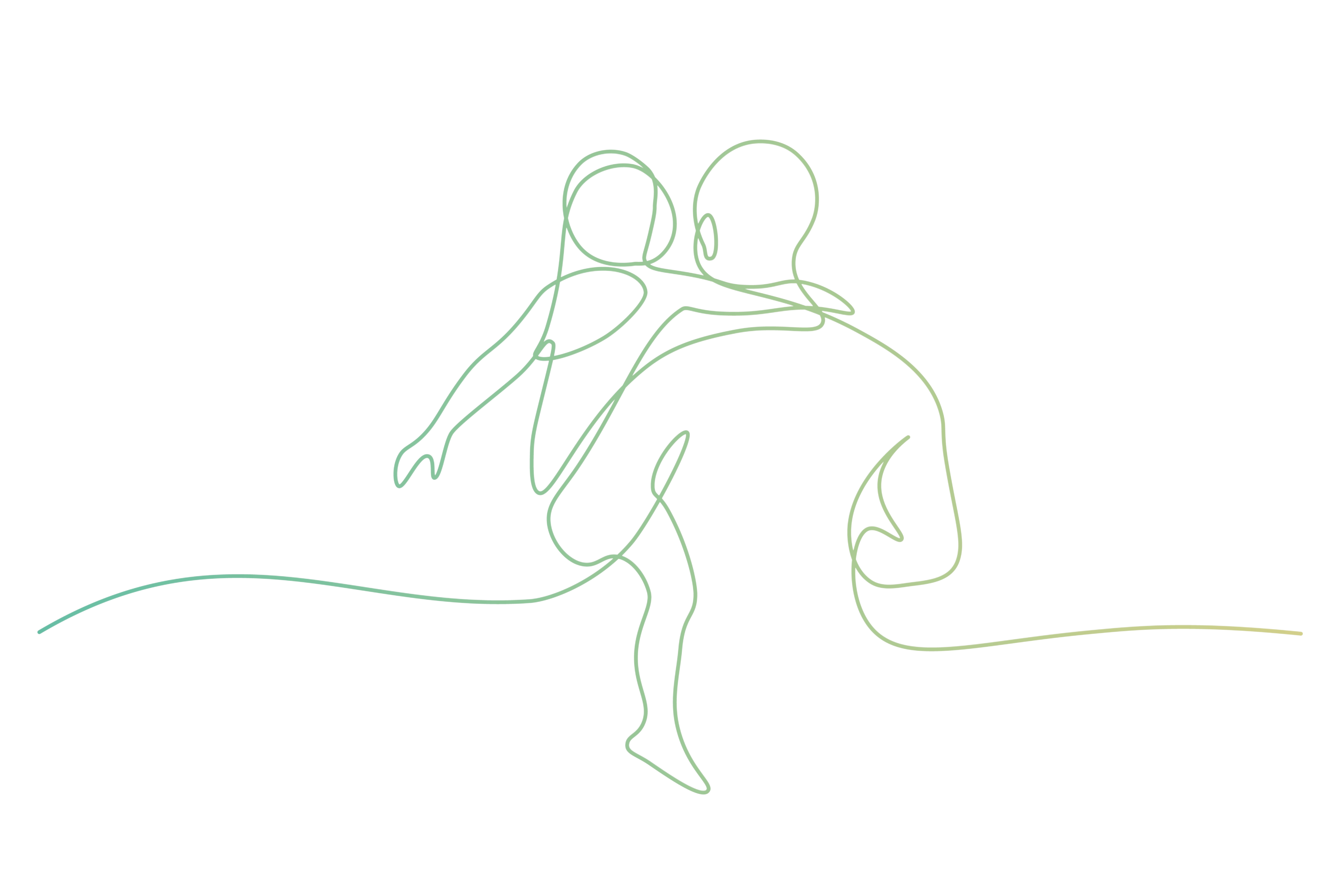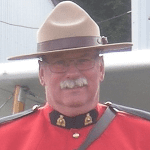Veteran Family Summit 2026
Join us January 22 – 23, 2026 for a free, virtual event dedicated to sharing information, resources and inspiration about Veteran Family mental health and well-being.Just as Veterans can be affected by their time in service, Veteran Families can often face challenges that impact their mental health as they support and serve alongside their loved ones. The Veteran Family Summit was created in collaboration with Veteran Families and those who support them in order to provide Families with access to knowledge, resources and supports specific to their unique needs — right from the comfort of their own home.
This year, join us to explore topics including overcoming grief and the act of self-love, mental health and brain fog, substance use and discovering hope and healing within a community that truly understands — because they’ve lived it too.
Our keynote speakers will include:
- Master Corporal (Ret’d) Natacha Dupuis, who will share her inspiring journey of navigating life after returning from Afghanistan with posttraumatic stress disorder (PTSD). Natacha now uses her voice to foster hope and awareness, after redefining her purpose and drawing strength from physical activity, her Family and the Veteran community.
- Sheri Lux, author of Finding My Fire, a heartfelt memoir of grief, healing and self-discovery. Sheri will open up about her personal journey through the quiet struggle of codependency, unravelled while supporting her husband, a Royal Canadian Mounted Police officer who had been living with an operational stress injury and tragically lost his battle with PTSD. Sheri will share how compassion, courage and the radical act of self-love helped her begin to heal.
This free two-day virtual event focuses specifically on the needs and experiences of Canadian Armed Forces (CAF) and Royal Canadian Mounted Police (RCMP) Veteran Families. In addition to serving Families, it offers a unique opportunity for service providers to learn how to best support the Veteran Family community.
The Veteran Family Summit is free to attend and features speakers from across Canada.
Learn more about our annual Veteran Family Summit — explore past events.
Agenda
11 a.m. – 4:30 p.m. Eastern time
National Strategic Advisor, Families
Atlas Institute for Veterans and Families
Lived Expertise Lead, Families
Atlas Institute for Veterans and Families
In this heartfelt and revealing keynote, Sheri Lux shares her personal journey of healing from the quiet grip of codependency — an often-invisible pattern as she felt herself begin to unravel while supporting her husband, a Royal Canadian Mounted Police (RCMP) officer who had been living with an operational stress injury. He tragically lost his battle to posttraumatic stress disorder (PTSD), leaving her to grieve with their two children.
Through her deeply personal story, she opens a conversation that’s often left in the shadows: What happens when someone you love is hurting… and you suddenly realize you’ve lost yourself in the process of trying to help?
Sheri offers an honest look at the painful patterns of over-functioning, people-pleasing and self-sacrifice that so often accompany life with someone in crisis. But more importantly, she shares how she began to break those patterns — with compassion, courage and the radical act of self-love.
She walks audiences through the messy, beautiful work of healing: setting boundaries without guilt, rediscovering identity outside of roles and finding new expressions of self-worth through creativity, community and inner reflection. Her message is both tender and empowering — a reminder that healing is possible, even in the wake of profound loss.
This session discusses what brain fog is and how it can impact Veterans and their Families. You will learn some preliminary theories on how it can be triggered, suggestions for management for the entire Family and strategies for advocacy in health care settings. This presentation also discusses ways that health care professionals can support Veterans with brain fog.
![]() Susan Clarke-Tizzard
Susan Clarke-Tizzard
Corporal (Ret’d)
![]() Ronessa Dass
Ronessa Dass
Master of Science in Occupational Therapy / PhD student
Witnessing active addiction has a profound impact on the entire Family system. This candid conversation will empower listeners with a deeper understanding of the underlying dynamics that contribute to the progression of substance use disorder and provide them with new and more intentional ways to engage with addiction. Listeners will hear real-life examples of maladaptive coping strategies and learn how these behaviours interfere with their ability to support the treatment and recovery process for themselves and those living with addiction. Families will leave with a greater awareness of the need for their own support and practical tools for immediate implementation.
![]() Donna Low
Donna Low
Canadian Certified Addiction Counsellor (CCDA)
![]() Sonja Riddle
Sonja Riddle
Master of Arts in Counselling Psychology | Bachelor of Social Work | Canadian Certified Counsellor
In times of uncertainty and transition, shared experience can become a quiet anchor. This panel will discuss the grounding power of peer support, not as a solution to fix all problems, but as a support to walk alongside each other. Through compassion, presence and lived wisdom, we can find moments of calm, connection and strength along the journey.
Panellists:
Moderators:
![]() Laryssa Lamrock (Host), Family member
Laryssa Lamrock (Host), Family member
National Strategic Advisor, Families
Atlas Institute for Veterans and Families
Lived Experience Lead, Families
Atlas Institute for Veterans and Families
National Strategic Advisor, Families
Atlas Institute for Veterans and Families
Lived Experience Lead, Families
Atlas Institute for Veterans and Families
January 23, 2025
11:00 a.m. – 4:30 p.m. Eastern time
Simultaneous interpretation will be available in French for all sessions
National Strategic Advisor, Families
Atlas Institute for Veterans and Families
Lived Experience Lead, Families
Atlas Institute for Veterans and Families
![]() Fardous Hosseiny
Fardous Hosseiny
President and CEO
Atlas Institute for Veterans and Families
In this inspiring and deeply personal talk, retired Master Corporal Natacha Dupuis shares her journey of navigating life after returning from Afghanistan with PTSD. Through the support of her Family, community and programs like Operational Stress Injury Social Support (OSISS) and the Soldier On program, Natacha found strength in sport, rediscovered purpose and began her path to healing. Now a decorated Invictus Games athlete and mental health ambassador, she uses her voice to raise awareness and offer hope. Her story is a testament to resilience, leadership and the power of connection in recovery. Join Natacha as she shares a message of courage and renewal.
![]() Natacha Dupuis, CD
Natacha Dupuis, CD
Master Corporal (Ret’d)
Join us for an eye-opening session that puts Veterans and Families at the heart of sleep research. Discover how the Atlas team brought learned and lived experience together, while navigating the ups and downs of studying real sleep experiences in the Veteran and Family community.
This presentation will explore the unique process of co-creation, where lived experience shapes every step of the research. You will hear about early insights from the study, what Veterans and Families are saying about their sleep — or lack of it — and how your voices are driving meaningful change.
Trauma-exposed Families (TExF) are Family members of individuals who are chronically and continually exposed to traumatic events as part of their regular work duties. Oftentimes, information about trauma is not available or not accessible to Family members, making it challenging to understand and navigate for themselves, their children and other Family members. This presentation will focus on “Trauma 101” for TExF and will provide clear and understandable language for participants to not only learn what trauma is, but also what it isn’t, as well as fundamental skills for managing exposures in the Family context.
As the mental health needs of Veterans and their Families grow more complex, so too do the approaches to healing. This panel discussion explores emerging and at times controversial modalities — such as psychedelic-assisted therapy — that are challenging traditional models of trauma care.
Designed as an open and balanced forum, the conversation brings together clinicians, researchers, Veterans and Veteran Family members to offer diverse perspectives on what is changing, what shows promise and what we still need to understand.
While neither the Atlas Institute nor members of this panel endorse or oppose the use of psychedelics, we recognize that more Veterans are exploring these treatments independently. Our goal is to provide an open forum for dialogue, promote education and support Veterans and their Families.
Panellists:
Moderators:
![]() Laryssa Lamrock (Host), Family member
Laryssa Lamrock (Host), Family member
National Strategic Advisor, Families
Atlas Institute for Veterans and Families
Lived Experience Lead, Families
Atlas Institute for Veterans and Families
National Strategic Advisor, Families
Atlas Institute for Veterans and Families
Lived Experience Lead, Families
Atlas Institute for Veterans and Families
NOTE: Clinical support is available throughout the summit
through the Family Information Line (1-800-866-4546).
Bios
Tabitha Beynen
Tabitha Beynen served for 10 years in the Canadian Armed Forces as a Medical Technician. Her story of her experience with posttraumatic stress disorder (PTSD) highlights the unique struggles related to women’s mental health, being in survival mode and learning to live again with feelings and emotions. She also focuses on the unique needs and experiences of single parents struggling with PTSD. She currently serves as Lived Expertise Lead, Veterans at the Atlas Institute.
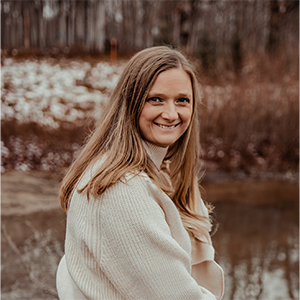
Dr. Tim Black
Dr. Tim Black is the National Clinical Director at Wounded Warriors Canada (WWC). A clinician, researcher and program developer, he has been working with trauma-exposed professionals (TExP) and their trauma-exposed Families (TExF) for his entire career. After more than 20 years as a tenured Associate Professor of Counselling Psychology at one of the top graduate programs in Canada, he left the academic world in 2024 to join WWC as National Clinical Director, where he currently oversees and supervises WWC’s education, training and treatment programs for traumatized TExP and their Families across Canada. Tim co-developed the WWC Trauma Resiliency programs (TRP1 and TRP2), Couples Overcoming PTSD Every Day (COPE) program, the Trauma Resiliency Training (TRT) and TRT for Leaders (TRT-L) programs, which have grown and expanded nationally and are now being delivered in multiple provinces in both official languages.
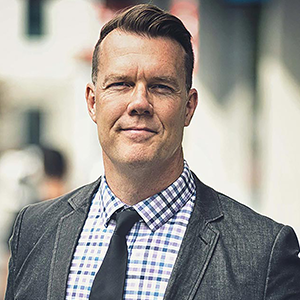
Jill Carleton
Jill Carleton is a retired Regular Force Naval Veteran, military spouse and military parent. She has volunteered with multiple non-profit and charitable organizations, mentored through the Mental Health Commission of Canada’s (MHCC) SPARK program and is a trained peer supporter through Mental Health Innovations and through the Mood Disorders Society of Ontario.
Jill is one of the founders of the Royal Canadian Legion’s Operational Stress Injury (OSI) Special Section and currently serves as the Dominion Treasurer of the Legion, as well as Secretary of the Navalis Foundation (formerly known as the Royal Canadian Naval Benevolent Fund).
Jill is an ardent believer in peer support and its role within the military and Veteran Family community.
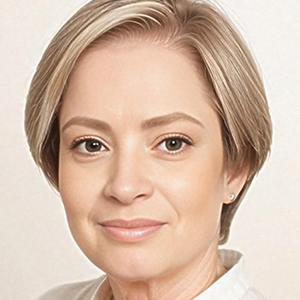
Susan Clarke-Tizzard
Susan Clarke-Tizzard grew up in the military and then joined it. She served from 1983 until 1994 in the Canadian Armed Forces (CAF). Long after leaving the CAF, she received her Bachelor of Arts in Organizational Management, Teaching English as a Second Language I & II from Crandall University and International Community Development from Mount Royal University.
She views the military as her culture and society. She never believed for a moment that she would ever leave the military environment, but ended up leaving on a medical release. In 2012, she had back and spinal surgery due to military injuries and just to make it more interesting, broke her hip while doing canicross with her dogs in 2017. As a Veteran consultant for research projects, living with chronic pain, she is able to educate researchers, clinicians and others regarding the Veteran mindset and the stoicism that is displayed in regards to chronic pain.
Susan is a volunteer who is dedicated to trying to make a difference for Veterans. Her strength is in communicating the uniqueness of military life as a military child and as a military member herself. As a woman Veteran, she is also able to discuss the unique issues that some women Veterans have faced in the military, and what they face as they attempt to transition to a life outside of the CAF.
She is an “et al” co-author, published in the Journal of Cancer Education and the Journal of Military, Veteran and Family Health.
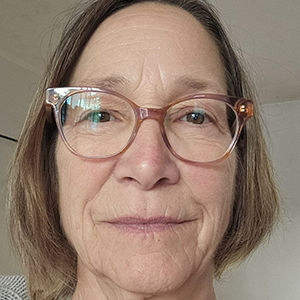
Ronessa Dass
Ronessa Dass (she/her) is a joint rehabilitation sciences and occupational therapy student at McMaster University, supervised by Dr. Tara Packham. Both Ronessa’s master’s and PhD thesis were supported by a Capacity Building Initiative from the Chronic Pain Centre of Excellence for Canadian Veterans. Ronessa is passionate about improving the accessibility of pain services.

Natacha Dupuis
Natacha Dupuis is a retired Master Corporal of the Canadian Armed Forces, with more than 16 years of service that include key missions such as the ice storm crisis, a tour in Bosnia and two deployments to Afghanistan. During her second tour, she faced the devastating loss of comrades, leading to a diagnosis of posttraumatic stress disorder.
Committed to her recovery, Natacha turned to physical fitness as a vital component of her healing journey. With the support of her loved ones and initiatives such as the Soldier On program, she regained strength and resilience through sport, rediscovering both purpose and a sense of community.
Her athletic journey took centre stage at the Invictus Games. In 2016, she earned two gold medals in track (100m, 200m) and a bronze in powerlifting. The following year in Toronto, she served as Co-Captain, winning three gold medals (100m, 200m, 400m) and a silver in indoor rowing.
Originally from Montreal’s south side, she now resides in the National Capital Region, where she serves the public in a new civilian role and advocates as a mental health ambassador through public speaking engagements. Her story is one of courage, transformation and perseverance, an inspiration for others to rise beyond adversity and pursue their dreams.
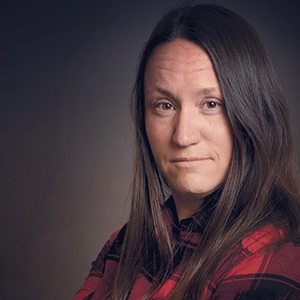
Gary Hollender
Gary Hollender started his service in uniform as a Cadet with the Seaforth Highlanders of Canada at age 12. He went on to serve in the Reserves before becoming a Royal Canadian Mounted Police (RCMP) Auxiliary Constable in 1988.
After Language Training and Depot, his first posting took him and his wife and three daughters from British Columbia to Peace River, AB. a wonderful community that accepted him and his Family as one of their own. It was also the first place someone shot at him.
After postings at Hobbema, AB, Cross Lake, MB, and again across Alberta in Leduc, Assumption, Thorsby, Breton, Maskwacis, Edmonton, and finally at the Edmonton Airport, he retired in July 2021. In addition to his normal duties, Gary volunteered with the Special Tactical Operations Team, then as a tactical medic with the RCMP Emergency Response Team and finally on the Comunity Liaison Team (dealing with protests and other major events).
The highlight of his career was as an Operational Trainer/Mentor to the Afghan National Police, in Kandahar, from March to December of 2009 while seconded to the Canadian Armed Forces (CAF) and United States Army.
In his spare time, he volunteered as a firefighter / Lieutenant from 1998 to 2013 in the communities where he lived, as well as a CAF Cadet Instructor training Cadets in Alberta and Manitoba since 2006.
He now works as a labour relations officer with the National Police Federation.
He has been married for 40 years, He has three daughters, six grandchildren, one dog and two cows.
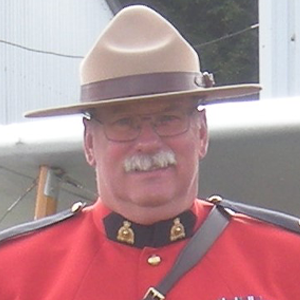
Fardous Hosseiny
Fardous Hosseiny is the President and CEO at the Atlas Institute for Veterans and Families. Before coming to Atlas, he was most recently the interim National Chief Executive Officer and the National Director of Research and Public Policy at the Canadian Mental Health Association.
Fardous hopes that Atlas embodies “serving those who have served” as we continue to work hand in hand with Veterans and their Families. His goal is for the Atlas Institute’s work, research and outreach to be imbued with the voices of Veterans and their Families, as he believes change will come through this kind of meaningful engagement.
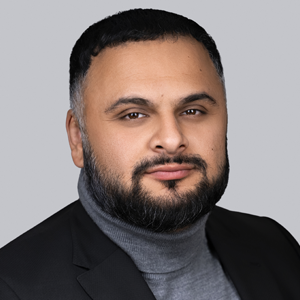



Gordon “Gordo” Hurley
Gordon Hurley (he/him) is a Canadian Armed Forces (CAF) Veteran who served 15 years as a light infantry airborne reconnaissance patrolman in the 3rd Battalion, Royal Canadian Regiment (RCR), and later as a special operator and Joint Terminal Attack Controller (JTAC) within Canadian Special Operations Command (CANSOFCOM).
Following his medical release, Gordon shifted his focus from military operations to creative and advocacy work. He co-founded All The Way Factory, a Veteran-led creative agency that uses storytelling, design and media to bridge the gap between lived experience and public understanding.
As the Producer and Creative Lead of the Advance Force Operations documentary series, Gordon brings a Veteran lens to conversations about trauma, transition and recovery. The series focuses on evidence-based, medically supervised therapies for posttraumatic stress and related injuries, beginning with ketamine-assisted therapy.
Gordon’s advocacy is rooted in collaboration with clinicians, researchers and Veteran-serving organizations across Canada. He has briefed government and community leaders on topics including operator syndrome and alternative therapies, to improve access, reduce stigma and encourage data-informed dialogue.
He continues to volunteer across multiple Veteran organizations and boards that focus on mental health, transition and community leadership. His work emphasizes honesty, inclusion and the belief that the people most affected by trauma should be part of shaping how we understand and address it.
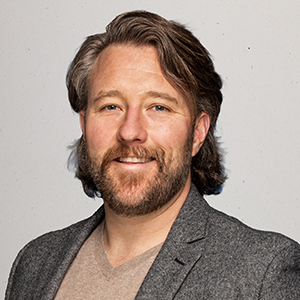

Howie Johnsony
Howie Johnson served in the Canadian Armed Forces (CAF) for 28 years, retiring in 2009. After transitioning from military service, he dedicates his time and efforts to peer support work, focusing on Veterans and first responders — groups whose sacrifices and challenges he deeply understands.
Howie continues to serve his community through volunteerism with Boots on the Ground and Heroes Mending on the Fly, ensuring that those who serve others are themselves acknowledged and supported.
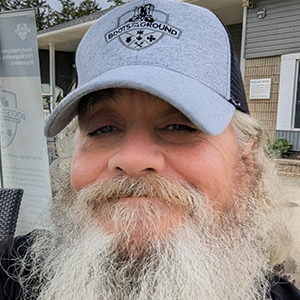

Danielle Kelly
Danielle Kelly has been a Family Peer Support Coordinator for over 17 years, supporting the Families of Canadian Armed Forces (CAF) members and Veterans. Danielle’s connection to the military community runs deep. She is the daughter of a now-retired military member and has been posted across Canada and had three postings to Germany. She is a daughter, mother of two amazing adults and grandmother to three grandchildren.
She is passionate and dedicated to supporting Families on their journeys of wellness with compassion, empathy and understanding. A strong advocate for helping Families learn to make their own well-being a priority while continuing to care for those they love, Danielle brings both lived experience and heartfelt commitment to her work.
She believes it is a privilege and honour to walk beside Families on their incredible journeys of healing and posttraumatic growth. She understands the impacts and challenges of operational stress injuries and reminds Families that they are never alone — that healing happens together, in community.
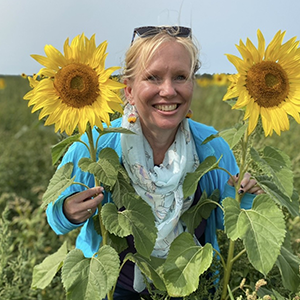

Laryssa Lamrock
Laryssa Lamrock is the National Strategic Advisor, Families at the Atlas Institute for Veterans and Families. She has a personal understanding of the many challenges facing Veteran Families as the spouse of a Canadian Armed Forces Veteran who was medically released with posttraumatic stress disorder and depression, and as a mother supporting four children impacted by the operational stress injury of their loved one. Laryssa draws from these experiences as she advocates passionately for and represents the voices of military and Veteran Family members.
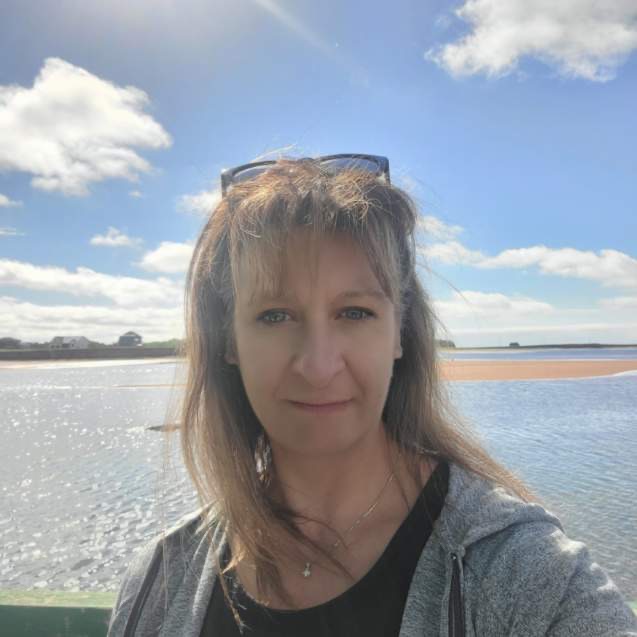

Donna Low
With more than 18 years of experience in the field of addiction, Donna Low has been a driving force behind the development and facilitation of some of Canada’s leading Family and children’s programs. Her work is grounded in a strong academic foundation in child and youth care and complex Family systems, further enriched by mentorship under Neal Berger, a renowned expert in substance use and mental health treatment across North America.
Donna’s approach is deeply compassionate and rooted in both professional expertise and personal experience. Having navigated the challenges of generational substance use disorder within her own Family, she brings a rare authenticity and empathy to her work. Her ability to create safe, supportive spaces allows individuals and Families to explore their healing journey with courage and hope.
Known for her down-to-earth style and genuine connection with others, Donna delivers recovery tools in a way that is both accessible and impactful. Through her work, she has inspired countless individuals, Families, communities and workplaces to believe in the possibility of recovery and lasting change.
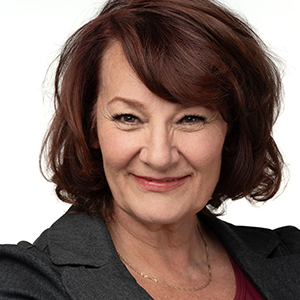

Sheri Lux
Sheri Lux is the author of Finding My Fire, a heartfelt memoir that chronicles her journey through grief, healing and self-discovery. In its pages, she vulnerably shares her experience navigating the quiet weight of codependency, the heartbreak of loss, overcoming transformative surgeries and the courage it takes to reclaim one’s voice.
She is a former teacher who earned her BA and B.Ed. from the University of Saskatchewan. She was married to a Royal Canadian Mounted Police (RCMP) officer, who tragically lost his battle with posttraumatic stress disorder (PTSD). After his passing, she left her teaching career to dedicate herself to her grieving children while also building her company, Karys Layne Candles. Through her scented woodwork candles and crystal-infused art, she creates pieces that embody transformation and healing — each one inviting you to slow down, reconnect and remember the light within.
As a mother, author, teacher, artist and entrepreneur, she embodies resilience in everything she does. Through her writing and public speaking, she inspires others to turn their deepest pain into power and to rebuild lives rooted in authenticity, strength and purpose. Sheri’s work serves as a reminder that even in our darkest moments, healing is possible — and that the life we’re meant to live awaits us on the other side of our willingness to rise, shine a light on the shadows and reveal the pattens which no longer serve us.
Sheri currently lives in Calgary, AB and finds her inspiration in the breathtaking views of the Rocky Mountains.
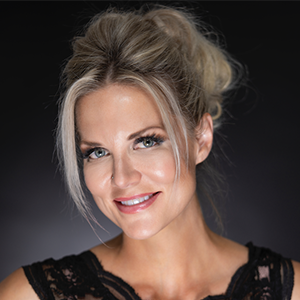

Kate Hill MacEachern
Dr. Kate Hill MacEachern is a Senior Research Associate at the Atlas Institute for Veterans and Families. Her work is anchored in social determinants of health with a particular interest in how sex- and gender-specific issues relate to mental health and well-being. She is a co-founder of the Athena Project, a community-engaged research initiative dedicated to conducting applied research in support of the mental health and well-being of women Veterans. She received a PhD in psychology from Carleton University.
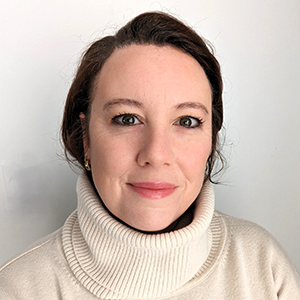

Polliann Maher
Polliann Maher is the Lived Expertise Lead, Families at the Atlas Institute for Veterans and Families. She is the spouse of a Veteran with posttraumatic stress disorder and brings to her role more than 20 years of lived experience in navigating the mental health system. Polliann is passionate about educating the Veteran community and sharing her knowledge of the resources that are available to them. She is a strong advocate around changes that encompass the Family, which are many times an afterthought or forgotten.
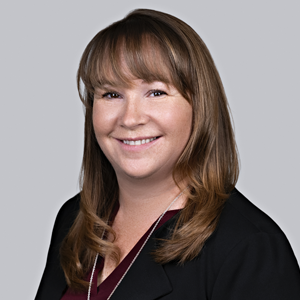


Brian McKenna
Brian McKenna served for 19 years in the Canadian Army, retiring as a Warrant Officer. In that time, he served in Bosnia twice, both as a signaller and then a section commander. He then deployed to Afghanistan twice, once with the Canadian Army and once again as a NATO counter-improvised explosive device instructor. While seeking medical treatment post-release, he joined with other Veterans in petitioning the government for the creation of a centre focused on Veteran and Family mental health issues, resulting in the establishment of the Atlas Institute. Brian has incorporated both evidence-based and non-evidence based practices in his recovery and currently serves as National Strategic Advisor, Veterans, for the Atlas Institute for Veterans and Families.
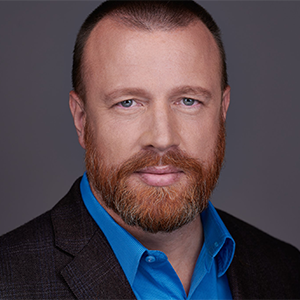

Candice Monson
Candice is a Professor of Psychology at Toronto Metropolitan University and Founder and CEO of Nellie Health. She is one of the foremost experts on traumatic stress, and specifically individual and conjoint therapies for posttraumatic stress disorder (PTSD) and the interpersonal aspects of traumatization and recovery. She has received numerous awards for her clinical, teaching and research contributions, including Fellow status in the Canadian and American psychological associations, Association of Behavioral and Cognitive Therapies and Canadian Association of Cognitive and Behavioural Therapies. In 2025, she won the Canadian Psychological Association Award for Distinguished Contributions to Psychology as a Science. She has published more than 200 publications and co-authored eight books, including the treatment manuals Cognitive Processing Therapy: A Comprehensive Manual and Cognitive-Behavioral Conjoint Therapy for PTSD. She is also well-known for her clinical training and therapy dissemination efforts.
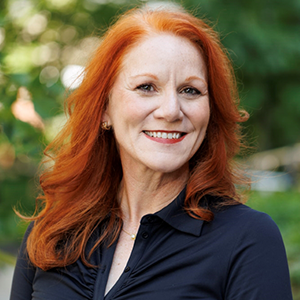

Sophie Richard
Sophie Richard is a registered social worker with more than 25 years of experience in the fields of bereavement and mental health within the Department of National Defence (DND). For more than 20 years, she has served as the National Program Bereavement Peer Support Manager for the HOPE (Helping Our Peers by Providing Empathy) program, a role through which she and her team has profoundly supported Canadian Armed Forces (CAF) members and their Families.
In 2006, Sophie developed the HOPE program, which provides peer support and education on grief. Through this program, she and her team have helped members and Families understand that grief is more than “just” sadness — it impacts one’s actions, emotions, thoughts, spirituality and both physical and mental health. Her compassionate approach and expertise have guided many through the most difficult moments of loss.
Throughout her career, Sophie’s passion for helping others navigate grief has remained steadfast. Her work continues to make a lasting impact on the lives of those she serves and on the culture of care within the CAF community.
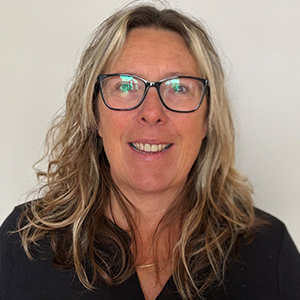

J Don Richardson
Dr. J Don Richardson is a psychiatrist at the Operational Stress Injury (OSI) Clinic, Professor and Tanna Schulich Chair in Neuroscience at Western University and Director of the MacDonald Franklin OSI Research Centre. He also serves as Medical Advisor to the Atlas Institute for Veterans and Families and is a Fellow of the Canadian Institute for Military and Veteran Health Research (CIMVHR). With more than 25 years of experience as a clinician-researcher and more than 100 peer-reviewed publications and book chapters, he is dedicated to advancing mental health care for military personnel and Veterans.
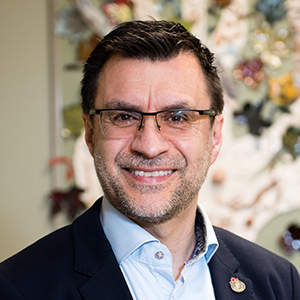

Sonja Riddle
Sonja Riddle is a highly skilled clinician with more than a decade of both personal and professional experience in the field of addiction. Her work spans the full continuum of care, with a strong focus on developing and facilitating Family and children’s programming at some of Canada’s leading treatment centres.
Throughout her career, Sonja has been dedicated to transforming how substance use disorder is understood and approached. Her ability to communicate complex concepts with clarity and compassion offers meaningful relief and insight to the individuals and families she supports. She creates a space where people feel seen, heard and empowered to heal.
Sonja’s teaching style is both inspirational and grounded, helping Families make sense of their experiences while fostering connection and hope. Her work continues to make a lasting impact on those navigating the challenges of addiction and recovery.
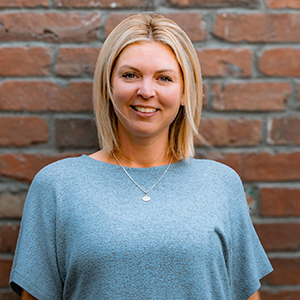

Dr. Thomas Wasiuta
Dr. Thomas Wasiuta is a psychiatrist primarily treating active-duty members of the Canadian Armed Forces (CAF), Veterans and Royal Canadian Mounted Police (RCMP) personnel. He has an undergraduate degree in neuroscience from the University of Toronto and completed his medical doctorate at Western University. Following residency training in psychiatry, he pursued additional fellowship training at the Operational Stress Injury (OSI) Clinic in London, ON, treating posttraumatic stress disorder (PTSD) and other OSIs. He has experience in novel therapeutic approaches to PTSD treatment, having recently incorporated ketamine treatment into his work with CAF Veterans.
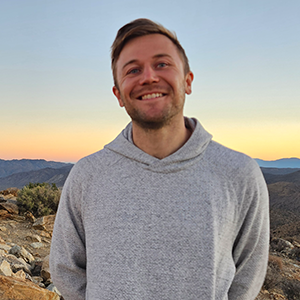

Grant Winfield
Grant Winfield is a military child and the son of two Veterans and has experienced first-hand what it is like to live with a parent with posttraumatic stress disorder (PTSD). While he and his parents are now each other’s closest supporters, they struggled through many of the trials of PTSD in isolation — away from relatives and other military Families. As an adult, Grant has found his place in the military Family community as a mentor, helping other military children understand mental health and not owning your parent’s trauma.
Grant has a Bachelor of Arts in Political Science and Drama from the University of Alberta. He has volunteered for four years as a mentor with Big Brothers Big Sisters and for two years with Wounded Warriors Canada (WWC). As a facilitator with the WWC Warrior Kids Camps, Grant guided the children of first responders and Veterans through discussions of mental health and operational stress injuries. Grant also works with a Veterans advocacy group, helping Veterans, Royal Canadian Mounted Police members, and their Families overturn unfavourable disability benefit decisions from Veterans Affairs Canada (VAC).
This is Grant’s second project with Atlas. In 2025, he participated in a digital storytelling workshop where he made a short film about his Family’s story titled Finding my role. He hopes that by sharing his experiences, other Veteran Family members will see the importance of peer support, not just for the health of the Veteran, but for themselves as well.
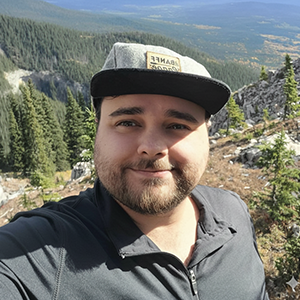



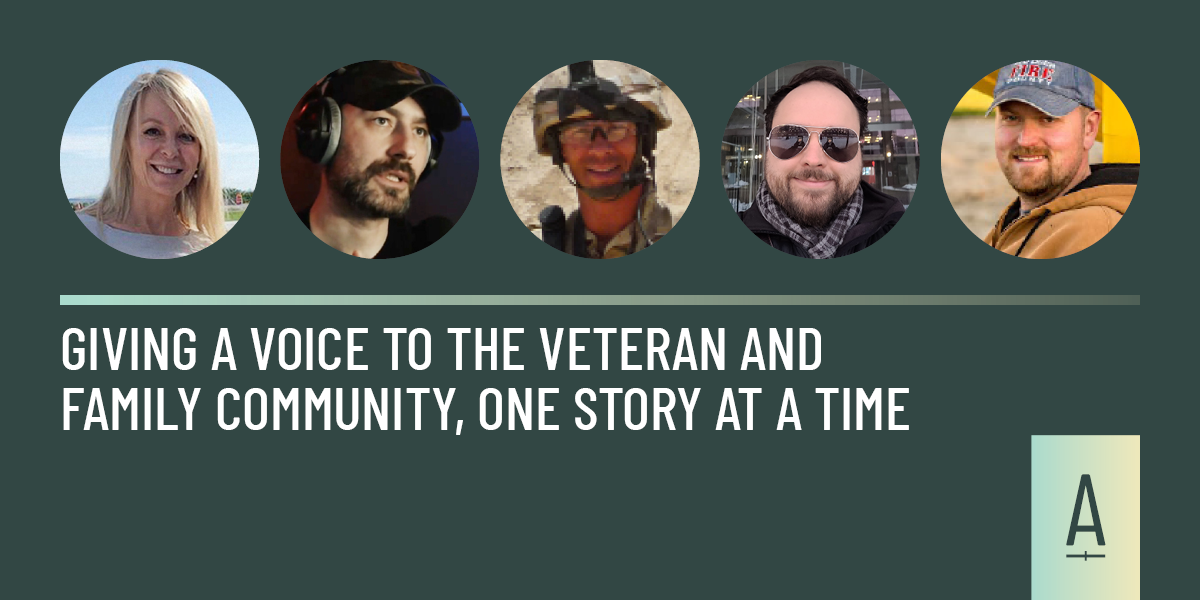

From left to right: Kathleen, Chance, Patrick, Grant, Laurence
Canadian Veterans and their Families have proudly served our country together, despite the many risks involved. Many of these risks result in invisible wounds that persist long after their service has ended. It can be a complex and difficult journey toward healing while balancing pride in their service with the need to recover from past trauma.
If you find yourself resonating with these challenges, know that you are not alone. The Atlas Institute for Veterans and Families invites you to discover a new series of digital stories told by Veterans and Veteran Family members. United by a shared desire to tell their stories, these individuals reveal their paths toward reclaiming their identity, finding purpose and redefining who they are today. Healing often begins with connecting — by sharing experiences with those who understand. In featuring these stories, we hope to shine a light on the power of connection and community in support of others who may be on similar journeys.
You are invited to join us on September 2, 2025 for a free screening of our newest digital stories from Veterans and Veteran Family members. This event will be held in English with French auto captioning available.
Note: Each of these real-life stories is impactful in its own way and can affect each person differently. Please remember to prioritize your self-care as needed. If you need support, please visit our directory of services for a list of resources available to current and former members of the Canadian Armed Forces and Royal Canadian Mounted Police and their Families.
The screening will include a panel discussion with each of the featured storytellers and the opportunity to ask them questions, reflecting on your own story.
Come and be part of a meaningful conversation about letting go of the past and embracing the future.
Explore other digital stories from CAF and RCMP Veterans and Family members. Told in their own words, they share a thread of recovery and resilience. In bringing these stories to life, the hope is to support others on their own journeys.
Veteran Family Summit 2025: Post-event summary report
Join us January 23 – 24, 2025 for a free, virtual event dedicated to sharing information, resources and inspiration about Veteran Family mental health and well-being.
Just as Veterans can be affected by their time in service, Veteran Families can often face challenges that impact their mental health as they support and serve alongside their loved ones. It is crucial to recognize that Family members themselves deserve to have their needs addressed as individuals.
Taking place January 2025, our third annual Veteran Family Summit will focus on the needs and experiences of Canadian Armed Forces (CAF) and Royal Canadian Mounted Police (RCMP) Veteran Families. This year’s summit will include conversations about moral injury, the impact of sleep on life and work, parenting with a posttraumatic stress injury, and so much more.
The summit is free to attend and features speakers from across Canada.
Join us for this special opportunity to connect with fellow Veteran Families and explore ways to foster resilience, healing and hope.
Learn more about our annual Veteran Family Summit — explore past events.
Agenda


Summit host: Laryssa Lamrock


Summit host: Polliann Maher
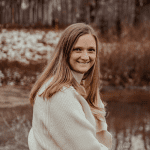

Summit emcee: Tabitha Beynen
11 a.m. – 4:30 p.m. Eastern time
Family member, National Strategic Advisor, Families
Atlas Institute for Veterans and Families
Family member, Lived Expertise Lead, Families
Atlas Institute for Veterans and Families
Join Jennifer Eyre as she shares her inspiring journey of 37 years as a military spouse, offering a heartfelt exploration of the resilience and growth forged through a life of service and sacrifice. Through personal stories and lessons learned, Jennifer will highlight how the challenges and triumphs of military life have shaped her strength and adaptability. Emphasizing the importance of finding purpose amidst the chaos, looking for the good in each day and being compassionate toward each other’s struggles, Jennifer offers valuable insights and universal lessons that resonate beyond the military community.
This session delves into a research study focused on the adult children of Canadian Armed Forces (CAF) Veterans and military members. By exploring their unique experiences and the effects of military service from their perspectives, the study aims to understand how growing up in a CAF Family impacts outcomes later in life. The session will present findings on the processes that shape resilience and development.
This presentation provides an essential look into the enduring effects of military life on Family members, offering valuable insights into their journeys and highlighting the importance of tailored support systems.
![]()
![]()
Professor, Department of Family Studies and Gerontology, Mount Saint Vincent University
![]()
![]()
National Strategic Advisor, Families
Atlas Institute for Veterans and Families
We’ll be presenting the l’Escale project, a workshop for medically-releasing military personnel, veterans and their spouses, and the reasons behind its creation.
Together, we’ll explore some of the psychosocial issues associated with illness or injury, as well as the transition from military to civilian life (grief, spheres of life, values, needs, opportunities, etc.). We will then discuss how this can be experienced by different family members.
You’ll be invited to take part in some of the exercises offered during l’Escale.
Panellists:
![]()
![]()
Social worker, Veteran Family Program Coordinator, Military Family Resource Centre (MFRC) Montreal Region
![]()
![]()
Social worker, Family Liaison Officer, MFRC Montreal Region
This presentation is designed to provide valuable insights into the critical role of sleep in mental health and how it specifically impacts Veterans and their Families. We will explore common sleep challenges faced by Veterans, including insomnia, nightmares, the effects of posttraumatic stress disorder (PTSD) and obstructive sleep apnea.
The presentation will outline some available strategies for improving sleep, offering actionable strategies and resources while acknowledging often significant treatment challenges.
Psychoeducation dispelling potentially harmful sleep “myths” will help guide Families, Veterans and service providers toward a better understanding of “what works” and “’what doesn’t.”
This panel will highlight the experiences of Canadian Armed Forces and Royal Canadian Mounted Police Veterans and Veteran Families, as they each cope uniquely with the effects of posttraumatic stress injury (PTSI). Panellists will share their journey and offer practical strategies for parenting amidst the challenges of trauma. Attendees will learn about fostering resilience, building emotional bonds and creating safe spaces for children.
Join us to explore the strength found in community and support, and leave with tools to navigate your own unique journey.
Panellists:
![]()
![]()
Director, Warrior Kids
Wounded Warriors Canada
![]()
![]()
Chief Superintendent (Ret’d), Royal Canadian Mounted Police
Moderators:
![]()
![]()
National Strategic Advisor, Families
Atlas Institute for Veterans and Families
Lived Experience Lead, Families
Atlas Institute for Veterans and Families
National Strategic Advisor, Families
Atlas Institute for Veterans and Families
Lived Experience Lead, Families
Atlas Institute for Veterans and Families
January 24, 2025
11:00 a.m. – 4:30 p.m. Eastern time
Simultaneous interpretation will be available in French for all sessions
National Strategic Advisor, Families
Atlas Institute for Veterans and Families
Lived Experience Lead, Families
Atlas Institute for Veterans and Families
![]()
![]()
President and CEO
Atlas Institute for Veterans and Families
You joined, served, something happened and you are leaving or have left the Royal Canadian Mounted Police or Canadian Armed Forces.
Everyone talks about finances (Veterans Affairs Canada, pension, job, debts) as well as physical and mental health — these are all important things.
But who is with you now, what is your plan with them, what is their plan (and did you even ask?) and did you leave anyone behind? A spouse, kids, grandkids, other close relatives (Mom/Dad), close friend or someone else? in this presentation, Staff Sergeant (Ret’d) Gary Hollender invites us to think not only about what the people around you can do for you, but also what you can do for them — and what you must do for them.
![]()
![]()
Staff Sergeant (Ret’d), Royal Canadian Mounted Police
Parents of Veterans often become the overlooked caregivers, particularly those supporting adult children dealing with military-acquired injuries, such as operational stress injuries (OSI). This presentation will explore a pioneering study focusing on the experiences of parents of Canadian Armed Forces Veterans living with OSI, revealing the emotional, physical and relational challenges these parents face. Through interviews, parents shared with us their experiences who, despite their critical role, often feel isolated and unsupported. This session will discuss the implications for Family-centred care and identify pathways for future research and interventions aimed at providing better support for these Family members.
Life transitions are inevitable. However, some come at us unexpectedly and can bring unanticipated challenges and adjustments that can leave anyone feeling overwhelmed and unsure of where to turn for assistance. Military Family Services understands the adjustments that military Families need to make prior to, during and after release or while supporting an ill/injured member.
Veteran Family Program Coordinator and Family Transition Advisor, Military Family Services
This panel joins past and present Invictus participants together with their supporting Family members to explore the complex challenges they face through the Games and to talk about their individual journeys of recovery. Hear first-hand accounts from Veteran Family members who have navigated the highs of competition and the lows of emotional struggle, often feeling overlooked in the process.
This session will shed light on the vital role of Family support, emphasizing the need for acknowledgement and resources to help Families cope with their own unique challenges. Join us to discuss the importance of resilience, community and mutual healing.
Panellists:
![]()
![]()
Early Childhood Educator
Moderators:
![]()
![]()
National Strategic Advisor, Families
Atlas Institute for Veterans and Families
Lived Experience Lead, Families
Atlas Institute for Veterans and Families
National Strategic Advisor, Families
Atlas Institute for Veterans and Families
Lived Experience Lead, Families
Atlas Institute for Veterans and Families
NOTE: Clinical support will be available throughout the summit.
Bios
Francis Auclair
Francis Auclair has been CANEX’s Eastern District Manager for the past year. He is responsible for the management team for 12 CANEX stores located on eight military bases in Eastern Canada: Bagotville, Gagetown, Goose Bay, Greenwood, Halifax, Saint-Jean-sur-Richelieu, St. John’s and Valcartier.
Before earning the title of District Manager, Francis began his career in 2018 with CANEX as the Recruit School Store Manager for the Saint-Jean-sur-Richelieu base. After three and a half years, his dynamism, innovation and leadership qualities helped him to be promoted to Area Manager for a period of two and a half years. This position enabled him to acquire the skills and qualifications needed to become Eastern District Manager after six years with the company.
Francis has worked for more than 15 years in the retail field, notably with Future Shop, Best Buy and RONA. During these 15 years, he acquired extensive experience in customer service, team management, inventory management and sales.
As District Manager, he and his team look forward to continuing to serve military customers to deliver the best possible in-store experience, while enhancing their role, services and member benefits, with the goal of serving those who serve and have served our country.
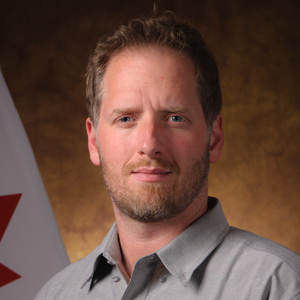


Jenna Babin
Jenna Babin is a dedicated advocate for mental health, particularly for veterans and their families. As the spouse of a Veteran husband living with posttraumatic stress disorder, she intimately understands the challenges faced by those navigating the complexities of mental health care. Her commitment to raising awareness and creating supportive environments is further exemplified by her husband’s involvement in the Invictus Games 2025, where they both champion resilience and recovery. A Family-oriented individual, Jenna is passionate about fostering community and encouraging open discussions surrounding mental health.
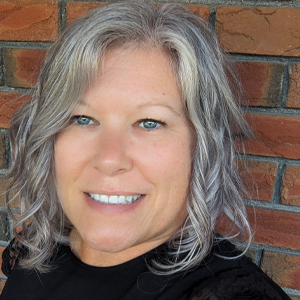


Mike Babin
Mike Babin is a retired Warrant Officer who served with the Royal Canadian Dragoons as an Armour Soldier and remustered to Chemical, Biological, Radiological and Nuclear (CBRN) Operator with the Canadian Special Operations Forces Command (CANSOFCOM). Medically released due to physical and mental injuries sustained from service, he understands the struggles of trying to serve and be a part of a Family. He hid his injuries for over a decade before it started to affect his work and everyday life and he finally accepted that something was not right. He shares about how posttraumatic stress disorder (PTSD) along with physical injuries cannot be fought alone and how support from the medical community, friends and Family is a must. He continues to try to focus on his own well-being as well as that of those close to him by participating in programs for PTSD.
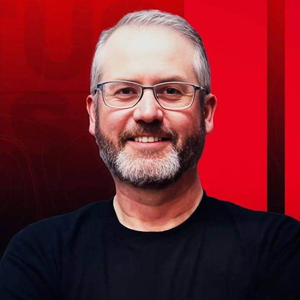


Marie-Eve Bastien
Marie-Eve Bastien is the Veteran Family Program Coordinator (VFPC) for Military Family Services in the National Capital Region (NCR). She works directly with members transitioning medically from the Canadian Armed Forces (CAF) and their Families, while also accepting non-medical referrals. Marie-Eve has nearly 20 years’ experience in intervention and mental health, mainly in community organizations. Over the years, she has worked with the unhoused population, residents diagnosed with schizophrenia and bipolarity, kids in difficulty and much more.
She joined Military Family Services in 2021 as the VFPC, where she was able to work front-line with medically transitioning members and their Families. She became one of the first Family Transition Advisors (FTA) working with the Families of voluntarily transitioning members and has since made the shift back to the VFPC role. Having supported both roles, Marie-Eve has been the right-hand person for every transitioning Family in the NCR.
Marie-Eve also has a personal understanding of the challenges Veteran Families can face. As a spouse of a medically transitioned CAF Veteran with PTSD and a mom to a little one impacted by operational stress injury, she draws from these experiences as she works and advocates for military Families.
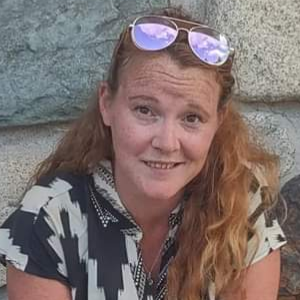


Tabitha Beynen
Tabitha Beynen served for 10 years in the Canadian Armed Forces as a Medical Technician. Her story of her experience with posttraumatic stress disorder (PTSD) highlights the unique struggles related to women’s mental health, being in survival mode and learning to live again with feelings and emotions. She also focuses on the unique needs and experiences of single parents struggling with PTSD. She currently serves as Lived Expertise Lead, Veterans at the Atlas Institute.
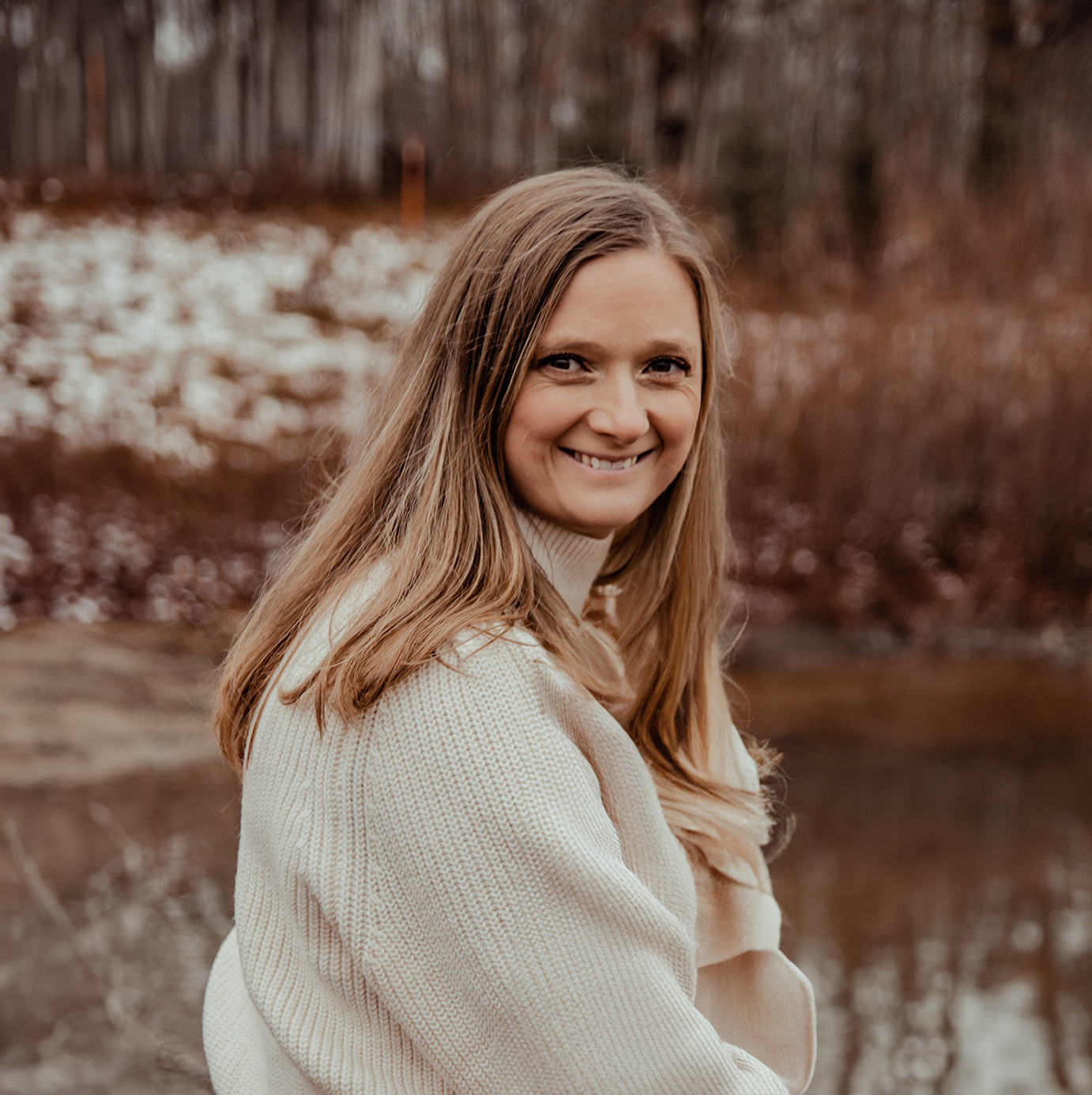


Farah Dib
Farah Dib is an investment advisor with more than 15 years of experience in the financial services sector, both abroad and in Canada. With a deep understanding of the unique financial needs and challenges faced by military members, she is dedicated to helping serving members, Veterans, and their Family members build and manage their wealth effectively. As an experienced investment advisor, Farah provides tailored guidance in retirement planning and investment strategies that align with the career transitions and financial priorities of military life. By offering a full range of financial solutions, she empowers military Families to reach their financial goals with confidence and peace of mind.
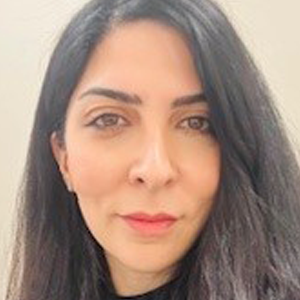

Myriam Dutour
With a bachelor’s degree in social work and over 23 years of experience in justice, delinquency and mental health, Myriam Dutour has expertise in individual and group interventions, as well as in mediation training in justice and citizenship. Her experience has led her to develop various workshops and sessions on a range of topics.
For the past seven years, she has been the coordinator for the Veterans Program at the Military Family Resource Centre in the Montreal region, where she has established and developed services for Veterans released for medical reasons and their Families. This work has resulted in a deep understanding of the issues surrounding the release from the Canadian Armed Forces. She collaborates with various stakeholders in the Veteran community, as well as with community and public organizations, to raise awareness of issues related to Veterans and their Families. In this way, she facilitates the transition and integration of Veterans and their Families into post-service life.
Since 2018, she has been collaborating with her colleague Audrey Gallant to continue the development and adaptation of a workshop for medically releasing military personnel and their spouses to better meet the needs of participants and ensure its success.
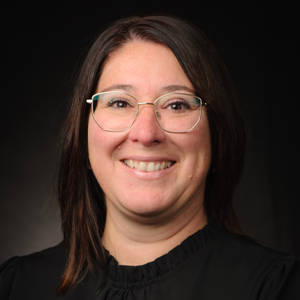

Jennifer Eyre
Jennifer Eyre is a bilingual teacher, facilitator, instructional designer, the spouse of a retired Canadian Armed Forces member, and mother. With many domestic and international military moves under her belt, she has worked and volunteered in many educational capacities, from high school classrooms with various school districts to instructional design with the Government of Canada. Jennifer has also taken educational opportunities such as becoming a Master Resilience Trainer with the University of Pennsylvania and the United States Army. She has a Bachelor of Science (Honours) with a major in Biology from Queen’s University and a Bachelor of Education from the Collège universitaire de St. Boniface (University of Manitoba).
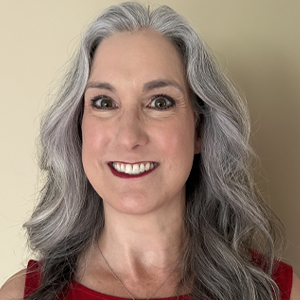

Audrey Gallant
With a bachelor’s and master’s degree in social work, Audrey Gallant in her role as MFRC Family Liaison Officer (FLO) has more than 15 years of experience working with Families of ill and injured military personnel, as well as Families of the fallen. Primarily a front-line clinician, she provides individual and couple counselling specifically related to grief, adaptation to illness or injury, burnout and other challenges affecting military personnel and their Families.
As one of the first 10 FLOs in the country, she identified gaps in services and was invited to participate in the national working group for the Veteran Family Program. Through her work with these Families, she noted several deficiencies, particularly regarding the transition out of the military for both members and their Families. She has fostered various collaborations with service partners to better inform and support these Families at her local level. Additionally, she has created a workshop for couples to address psychosocial issues related to medical releases from the Canadian Armed Forces. In 2018, her colleague Myriam Dutour joined the team, and together they continued to refine this workshop to better meet participants’ needs and ensure its success.
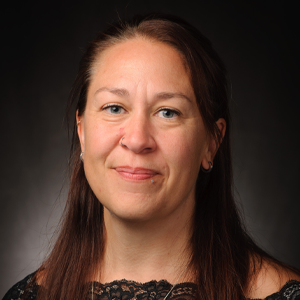



Michèle Gauthier
Michèle Gauthier is a counsellor with the Military Family Services (MFS) Family Information Line (FIL). She receives calls from military members, Veterans and their Families — both near and far — offering information, referral to various programs, crisis support or ongoing emotional support.
Before joining the MFS team, Michèle worked with Families under the Director of Youth Protection, offering them tools and resources to help them continue their journey in the right direction. Working directly with children and youth, she has learned a great deal about intervention and emotional support, offering clients a safe space to express and share their emotions. Michèle uses her skills in her work with military and Veteran Families.
Working with FIL since 2022, Michèle has adapted her skills and learning to her current work environment. She asks clients questions in order to fully understand their issues and refer them to the best resource, and listens to the emotions and concerns of each caller.
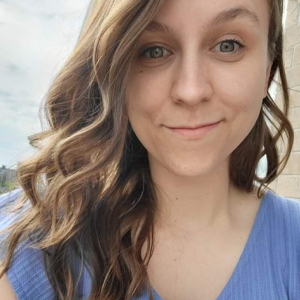



Andrew Gough, CD
Andrew Gough is a medically retired police Sergeant (London Police Service in Ontario) and soldier. Andrew served concurrently in both vocations for nearly 25 years.
Injured by an “act of terrorism” in Tripoli, Libya, and having also been involved in the evacuation of the Canadian Mission to Libya in July of 2014, coupled with years of policing, Andrew was diagnosed with a complex posttraumatic stress injury in 2016.
Andrew has turned his injury into advocacy, starting a federal not-for-profit, Veterans and Everyday Heroes (V-EH!) in 2018. V-EH! aims to provide acts of kindness and service dog funding support for Veterans and first responders.
As a result of his passion for the Veteran and first responder communities, Andrew has received the Canadian Mental Health Association’s “Champion of Change” award, Canada Beyond the Blue’s “Community Partner” award, the Police Association of Ontario’s “Police Services Hero of the Year” award, and the Minister of Veterans Affairs Commendation.
Andrew has been married to his high school sweetheart Elizabeth for more than 21 years. They have two teenage children together. Andrew can always be found with his service dog Riggs.
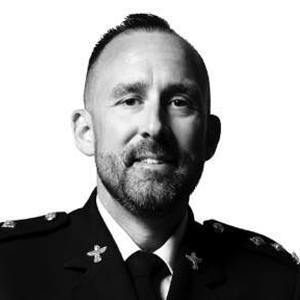



Erik Gravelle
Erik Gravelle has been in the insurance industry for 21 years and strives towards a holistic approach when dealing with clients. He enjoys the interaction and is always looking for ways to simplify financial questions.
In his free time, he volunteers with different local organizations and enjoys cycling around Ottawa, discovering numerous bike trails.
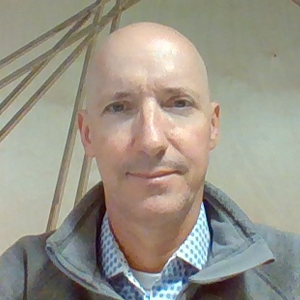



Dr. Helena Hawryluk
Helena Hawryluk, PhD, RSW is one of the co-founders of Families First: Supports for Occupational Stress Inc. and director of the National Warrior Kids Programs offered through Wounded Warriors Canada, available to children and youth from military and first responder Families impacted by a parental psychological injury.
Helena has spent more than a decade creating a space for the development and provision of meaningful mental health services for Veteran and first responder Families. She believes in critically examining what the research offers in terms of new knowledge on this population and translating this into evidence-informed practice.
Helena completed her undergraduate degree in psychology at Concordia University, a Bachelor of Social Work from the University of Calgary, followed by her Master of Clinical Social Work and then her PhD with the Faculty of Social Work at the University of Calgary. She was awarded the Wounded Warriors Doctoral Scholarship for her research with youth in military Families impacted by posttraumatic stress disorder, post-Afghanistan war.
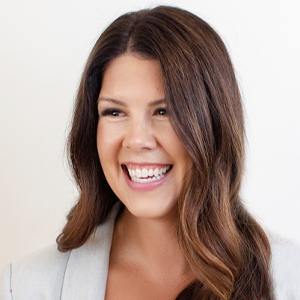



Gary Hollender
Gary Hollender started his service in uniform as a Cadet with the Seaforth Highlanders of Canada at age 12. He went on to serve in the Reserves before becoming a Royal Canadian Mounted Police (RCMP) Auxiliary Constable in 1988.
After Language Training and Depot, his first posting took him and his wife and three daughters from British Columbia to Peace River, AB. a wonderful community that accepted him and his Family as one of their own. It was also the first place someone shot at him.
After postings at Hobbema, AB, Cross Lake, MB, and again across Alberta in Leduc, Assumption, Thorsby, Breton, Maskwacis, Edmonton, and finally at the Edmonton Airport, he retired in July 2021. In addition to his normal duties, Gary volunteered with the Special Tactical Operations Team, then as a tactical medic with the RCMP Emergency Response Team and finally on the Community Liaison Team (dealing with protests and other major events).
The highlight of his career was as an Operational Trainer/Mentor to the Afghan National Police, in Kandahar, from March to December of 2009 while seconded to the Canadian Armed Forces (CAF) and United States Army.
In his spare time, he volunteered as a firefighter / Lieutenant from 1998 to 2013 in the communities where he lived, as well as a CAF Cadet Instructor training Cadets in Alberta and Manitoba since 2006.
He now works as a labour relations officer with the National Police Federation.
He has been married for 40 years, He has three daughters, six grandchildren, one dog and two cows.




Fardous Hosseiny
Fardous Hosseiny is the President and CEO at the Atlas Institute for Veterans and Families. Before coming to Atlas, he was most recently the interim National Chief Executive Officer and the National Director of Research and Public Policy at the Canadian Mental Health Association.
Fardous hopes that Atlas embodies “serving those who have served” as we continue to work hand in hand with Veterans and their Families. His goal is for the Atlas Institute’s work, research and outreach to be imbued with the voices of Veterans and their Families, as he believes change will come through this kind of meaningful engagement.




Gailynne & Dean Irvine
Dean and Gailynne Irvine are 2018 Invictus Games alumni.
They are humbled to be able to participate in the Veteran Family Summit and be able to share and speak about their Invictus journey.
Dean was medically released in 2018. His Invictus experience taught him many things, some things that he wanted to learn and some things that he didn’t. It taught him tenacity and reinforced his “no quit” attitude, no matter what. He has learned that as long as he tries and tries everything, he may fail, but he will try again and in time he will always find a way to succeed. In 2024, Dean battled an aggressive cancer. He reflected back on the Invictus Games and used many skills that I learned from the Games to fight hard through his chemo treatments. Through it, he found himself rediscovering Family again. He shares that it’s important to never give up and keep moving forward, whatever your forward is, as everyone’s journey is different.
Invictus 2018 also gave Gailynne and Dean a rare gift through the renewal of their wedding vows. On the last day of the Games, they were surrounded by their Family, friends and new friends from around the world who were their witnesses. Invictus 2018 will always hold a special place in their hearts and has given them a memory together, as Dean doesn’t remember their first wedding in 2000 due to an accident in 2004. After Dean’s wheelchair rugby game, the Irvines were voted as the “Unconquered Family.” In all the ups and downs, they have seen that their Family is always there and that they are Invictus.
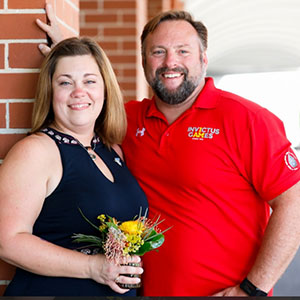



Laryssa Lamrock
Laryssa Lamrock is the National Strategic Advisor, Families at the Atlas Institute for Veterans and Families. She has a personal understanding of the many challenges facing Veteran Families as the spouse of a Canadian Armed Forces Veteran who was medically released with posttraumatic stress disorder and depression, and as a mother supporting four children impacted by the operational stress injury of their loved one. Laryssa draws from these experiences as she advocates passionately for and represents the voices of military and Veteran Family members.


Hélène Le Scelleur
Captain (Ret’d) Hélène Le Scelleur enlisted in the Canadian Armed Forces in March 1990 when she was only 17 years old. She joined the first female cohort in the infantry trade at the Régiment de Maisonneuve in Montreal. Hélène’s love for service to her country led her to join the Regular Forces in 1999 where she served a further 17 years, primarily as a health care administrator. During her long career, Hélène has had numerous assignments and deployments, notably in the former Yugoslavia on two occasions and in Afghanistan between 2007 and 2008.
Due to the recognition of her work in Afghanistan, Hélène received a commendation from the Commander of the Expeditionary Forces Command and was also chosen to become the aide-de-camp to the former governor general of Canada, the Right Honourable Michaëlle Jean. Sadly, Hélène’s career came to an end in 2016 following a diagnosis of posttraumatic stress disorder linked to her last mission in Afghanistan. Deciding not to give up in the face of this irreversible decision, she pledged to pursue doctoral studies with the aim of finding new solutions to deal with the identity crisis that follows the transition to post-service life for military personnel living with an operational stress injury.
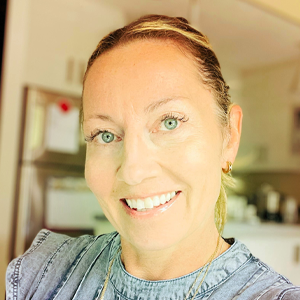


Brad LeBel
Brad LeBel currently serves as a Sgt Vehicle Tech at 2 Field Ambulance in Petawawa, ON. He is married to Julie and they have two daughters, Kaydence (13) and Kailynne (10).
Brad grew up in Gillam, MB and joined the Reserves in Sault Ste. Marie in 2001 while going through college as an automotive technician. He has been on four operational deployments and has been posted to multiple places across Canada.
This year, he is fortunate to have been selected as a participant in the 2025 Invictus Games, participating in sitting volleyball, alpine skiing and indoor rowing.
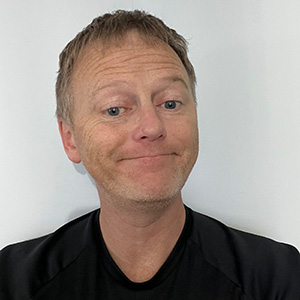


Polliann Maher
Polliann Maher is the Lived Expertise Lead, Families at the Atlas Institute for Veterans and Families. She is the spouse of a Veteran with posttraumatic stress disorder and brings to her role more than 20 years of lived experience in navigating the mental health system. Polliann is passionate about educating the Veteran community and sharing her knowledge of the resources that are available to them. She is a strong advocate around changes that encompass the Family, which are many times an afterthought or forgotten.



Rebecka Mason
For the past 12 years, Rebecka Mason has parented alongside her husband, a Canadian Armed Forces (CAF) Veteran living with a posttraumatic stress injury (PTSI). During the first nine years, he was still actively serving and frequently deployed. Their journey with PTSI has had its highs and lows, which they have faced together as a Family, ensuring open communication with their daughter about her father’s experiences and challenges. Over the years, Rebecka’s husband has made significant strides and now serves as a certified meditation teacher, assisting other Veterans and CAF members with PTSIs. Rebecka has dedicated eight years to providing peer support to other Families through the Operational Stress Injury Social Support (OSISS) program at Veterans Affairs Canada and has also been actively involved in co-developing a new resource on parenting with PTSI with Atlas. Her volunteer efforts and area of passion extend to supporting youth sports, including U13A Rep Hockey and serving as an Assistant Coach for a U13 Rep Fastball team.
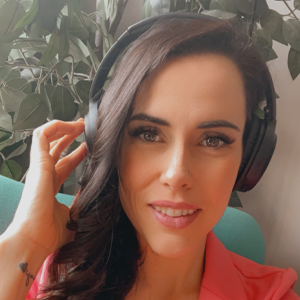


Dr. Deborah Norris
Holding undergraduate and graduate degrees in Family Science, Deborah Norris is a professor in the Department of Family Studies and Gerontology at Mount Saint Vincent University. She has developed and taught many Family studies courses in that program, including a course focusing on military and Veteran Families.
An abiding interest in the interdependence between work and Family life led to Deborah’s early involvement in planning and implementing military partner programs and parent education programs at the first Military Family Resource Centre located at Canadian Forces Base Halifax. Insights gained through conversation with program participants were the sparks that ignited a long-standing commitment to learning more about the lives of military-connected Family members.
Informed by ecological theory and critical theory, Deborah’s research program is applied, collaborative and interdisciplinary. She has facilitated studies focusing on the everyday lives of women military partners experiencing the cycle of deployment, resilience(y) in military and Veteran Families, work-life balance in Families where mothers are serving members in the Canadian Armed Forces , the bi-directional relationship between operational stress injuries and the mental health and well-being of Veteran Families, Family psychoeducation programs for military and Veteran Families and the transition to post-military life. She has collaborated with fellow academic researchers, defence scientists at the Department of National Defence, Veterans Affairs Canada personnel and others. Recently, her research program has expanded to include an emphasis on the impacts of operational stress on the Families of public service personnel.
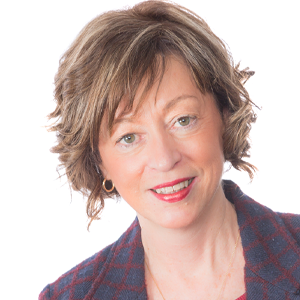


Luisa Russo-Lemay
Luisa Russo-Lemay retired from the Royal Canadian Mounted Police with 40 years of experience as a police officer and civilian. Her service has taken her across Canada as well as China, Egypt and parts of Europe where she led multidisciplinary teams for the purposes of security, law enforcement, investigation, human resources, strategic planning and operational support to preserve national safety and integrity.
In 2018, faced with a diagnosis of posttraumatic stress disorder and depression, Luisa sought treatment at the Operational Stress Injury Clinic in Ottawa in the hopes of developing methods and skills to assist herself, her husband and their two children to better understand and manage the diagnosis. Over the past six years, she has openly discussed her diagnosis and has developed strategies, with the assistance of professionals, that work for her and her Family.
Luisa has a passion for cooking and baking, volunteering with not-for-profit organizations and hiking/walking her beloved dog Shelby who has been instrumental in her journey to better health.
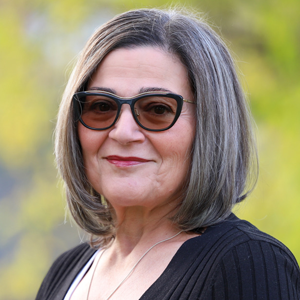


C. Richard Spates, PhD
C. Richard Spates is a clinical psychologist and professor emeritus at Western Michigan University. With a career spanning over four decades, he has become a leading expert in anxiety disorders, trauma and empirically supported treatments.
Richard earned his PhD in clinical psychology from the University of Illinois in 1976. His career includes significant roles in public mental health administration and academia. At Western Michigan University, he served as Director of Clinical Training for 20 years, and as Department Chair during that time.
His research focuses on anxiety disorders, trauma and posttraumatic stress disorder (PTSD), with extensive work on eye movement desensitization and reprocessing (EMDR) and cognitive-behavioural treatments. Richard has also explored technology-based interventions for mental health issues.
As a consultant, Richard has worked with various organizations, including the U.S. Department of Veterans Affairs, providing expertise on PTSD treatment and program evaluation. His work with the Michigan Department of Mental Health has influenced policies on clinical standards and behavioral services. He has also served as an expert witness in cases related to trauma and PTSD.
Recognized internationally, Richard has held visiting professorships in Australia and Japan, and has presented his research worldwide. He is a Diplomate of the American Academy of Experts in Traumatic Stress and has received numerous honours.
His latest work, co-authored with Karis Callaway, The Moral Injury Spectrum: From Conflict to Healing in Individual and Cultural Contexts, reflects his ongoing commitment to understanding and addressing complex psychological issues, including moral injury.
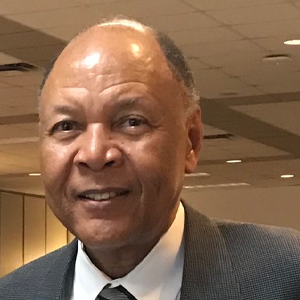


Dr. Craig Stewart
Craig P. Stewart, MB BAO BCh, MA, FRCPC is a Consultant Psychiatrist and Interim Medical Director at the St. Joseph’s Operational Stress Injury Clinic (London, ON), working out of the Greater Toronto Area satellite site. He completed a Clinical Fellowship in Sleep Medicine at the Schulich School of Medicine and Dentistry at Western University (London, ON) where he serves as Adjunct Professor in the Department of Psychiatry. His academic role primarily involves contributing to undergraduate and postgraduate teaching on sleep. He holds a master’s degree in behavioural neuroscience from Brock University (St. Catharines, ON) with a focus on neurophysiological correlates of sleep, with additional research experience in circadian rhythms. In addition to his regular OSI Clinic work, he also practises at a community sleep clinic in the Greater Toronto Area.
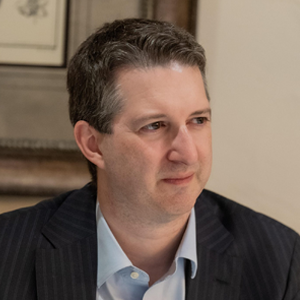


Shawna Stewart
Shawna Stewart is a dedicated educator with a rich background rooted in military, public service and Family. She is the daughter of a retired military Veteran, the wife of a Royal Canadian Mounted Police officer living with posttraumatic stress disorder and the mother of both an Emergency Services Operator and a serving soldier. Shawna has a deep personal understanding of the unique challenges faced by military Families, first responders and those living with trauma.
Having served as a reservist for six years, she has a first-hand appreciation for the sacrifices made in service to the country. With a Bachelor of Education and a master’s degree in curriculum and instruction, focusing on trauma and resilience in classroom settings, Shawna is committed to creating supportive learning environments where all students can thrive — especially those impacted by trauma.
Her dedication to education, mental health and resilience continues to drive her work as she advocates for the well-being and success of those who have given so much in service to others.
In her free time, Shawna is an avid sports fan and can be found in arenas or gyms across Alberta cheering on her children or watching the Edmonton Oilers at home.
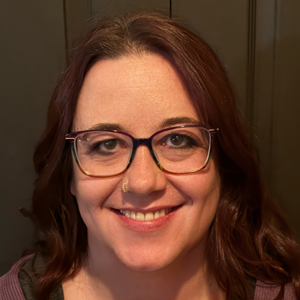


Linna Tam-Seto
Linna Tam-Seto is an occupational therapist and Assistant Professor in the Department of Occupational Science and Occupational Therapy, Temerty Faculty of Medicine at the University of Toronto. Linna’s research focuses on the identification and clinical implementation of occupation-specific cultural competencies, understanding the role and identity experiences of women in security and defence careers, and the impact of security and defence careers on the life course of Families. She works closely with local, national and international collaborators and organizations in support of security and defence Families.
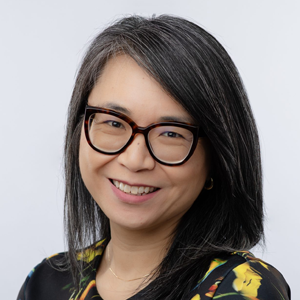


Lori-Anne Thibault
Lori-Anne Thibault is the Bilingual Communications Specialist at the Atlas Institute for Veterans and Families. As the daughter of parents who have served and the spouse of a serving Canadian Armed Forces member, Lori-Anne brings an understanding of the challenges that emerge from a life of service, the cost of service, and in that is deeply passionate in working to address the need for appropriate care for Veterans and their Families. She also brings experience working with serving Royal Canadian Mounted Police members, having a special interest in telling their stories and advocating on their behalf.
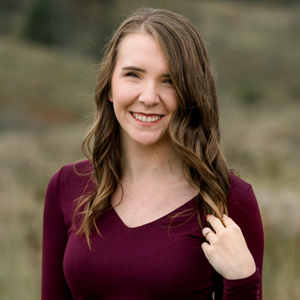


Margaux Wolfe
Margaux Wolfe has been a dedicated advocate for military Families since 2018, when she joined Military Family Services as the Veteran Family Program (VFP) Coordinator. She later took on the role of VFP Manager in 2020. In 2021, Margaux transitioned to the Spousal Employment Team, where she currently serves as the Employment and Entrepreneurship Program Manager.
In her role, Margaux focuses on bridging employment gaps for military spouses by fostering partnerships with employers who are committed to hiring and retaining military spouses throughout their careers. She oversees and leads strategic initiatives within the Military Spousal Employment Network, including organizing virtual career fairs and the Employer Spotlight Series, which highlights companies dedicated to supporting military Families and supports the creation of meaningful employment connections between skilled military spouses and committed employers.
Before her tenure at MFS, Margaux worked in philanthropy as a Community Development Coordinator at Parkinson Canada, where she supported individuals living with Parkinson’s disease. Her diverse background and passion for community service continue to drive her efforts in empowering military spouses and enhancing their employment opportunities.
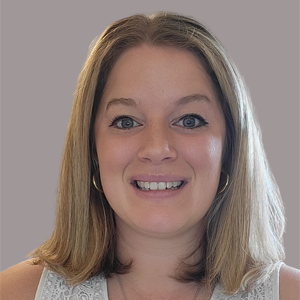




Every year, the Canadian Institute for Military and Veteran Health Research (CIMVHR) hosts an annual international forum that brings together hundreds of researchers, policy makers, service providers, peer support organizations and intermediary organizations to present the latest research focused on military and Veteran health and mental health.
The Atlas Institute for Veterans and Families will be participating at CIMVHR Forum 2024 with the goal of continuing to strengthen our networks and exploring potential collaborations both nationally and internationally. At the same time, we aim to share information and raise awareness about our research in the Veteran and Family mental health and well-being space. A key focus for us at the CIMVHR Forum 2024 will be to continue advocating for the practice of bringing the lived experiences of Veterans and their Families forward in conversations about issues that affect them.
This year, Atlas will again be working to ensure that lived experience is represented at CIMVHR Forum 2024 by offering a limited number of travel grants to Veterans and Veteran Family members in our network.
If you are attending CIMVHR Forum 2024, we invite you to visit our booth and attend our symposia, podium and poster presentations to learn more about how, together, we are bridging the gap between research and practice to create positive change for Veterans and Families across Canada.
To access the full schedule of events, including locations, visit the CIMVHR Forum website.
Poster presentations
- Presenter: Victoria Carmichael, MSc, Senior Knowledge Mobilization Specialist, Atlas Institute for Veterans and Families
- Summary: This poster will summarize specific tools and strategies that have been and will be used to share an evidence-informed youth mental health education hub (MindKit.ca) with key organizations and individuals across Canada. This presentation could be useful to inform knowledge dissemination activities by researchers, individuals or organizations.
Podium presentations
- Presenter: Jonathan Lieberman, BSc, PhD student, Neuroscience, McMaster University, under the supervision of Andrew Nicholson, PhD
- Summary: This presentation will examine how biological sex influences brain connectivity in posttraumatic stress disorder (PTSD). Females and males with PTSD showed distinct patterns in brain connectivity, suggesting that biological sex plays a significant role in how PTSD affects the brain. This research highlights biological sex as a critical consideration for understanding and treating PTSD.
- Presenter: Robin Dziekan, Network and Partnerships Lead, Atlas Institute for Veterans and Families
- Summary: Two initiatives were launched with the aim of informing Atlas on the current state of public policy work related to Veteran and Family mental health and well-being, including a series of consultations with 14 peer organization and an environmental scan of the public policy landscape.
Symposia
- Presenter: Andrew Nicholson, PhD, Assistant Professor, School of Psychology, University of Ottawa, and Clinical Research Director, Atlas Institute for Veterans and Families
- Summary: Researchers investigated the use of neurofeedback (NFB) as a method by which to directly and non-invasively regulate altered brain activity in posttraumatic stress disorder (PTSD), finding that NFB resulted in normalized brain activity, as well as significantly improved PTSD symptoms.
- Presenter: Gray Gaudett, Research Assistant, Atlas Institute for Veterans and Families
- Summary: This study looked at how social support relates to depression in aging Canadians. The sample consisted of 48,663 aging Canadians who participated in the Canadian Longitudinal Study on Aging. Results show that social support relates to depression differently in Veterans (compared to non-Veterans) and in younger (compared to older) Veterans.
- Moderator: MaryAnn Notarianni, Deputy CEO and Executive Vice President of Knowledge Mobilization, Atlas Institute for Veterans and Families
- Summary: This symposium aims to help participants be able to identify opportunities to engage Veterans and Family members in the work they do as well as the best practices related to engaging with them.Full list of presentations included within this symposium:
- Working with women Veterans to generate evidence to support women Veterans
- Presenter: Kate Hill MacEachern, PhD, Senior Research Associate, Atlas Institute for Veterans and Families
- Summary: Using an ongoing community-engaged research project for Canadian women Veterans as an example, this presentation will discuss how engaging a working group of community members in the research process can lead to research that is more meaningful and more useful to those who rely on evidence to make decisions.
- Engaging Veterans with lived experiences of PTSD and their Families in co-development capacities
- Presenter: Ashlee Mulligan, Director, Partnerships and Stakeholder Engagement, Atlas Institute for Veterans and Families
- Summary: This presentation, anchored in the Atlas Institute Veteran and Family engagement framework, will provide a foundational definition of Veteran and Family engagement within the mental health sector in Canada, along with related engagement principles and success strategies that can be implemented by researchers and intermediary organizations.
- Lived expertise engagement within a co-Principal Investigator research model: Parts 1 and 2
- Presenters: Laryssa Lamrock, National Strategic Advisor, Families, Atlas Institute for Veterans and Families (part 1) and Brian McKenna, CD, National Strategic Advisor, Veterans, Atlas Institute for Veterans and Families (part 2)
- Summary: Two studies have piloted a novel approach to research through integrating lived expertise as co-Principal Investigators. One delves into the experiences faced by military Families and the other explores the personal experience of resilience within specialized military service. Lived expertise enriches research design, execution and interpretation, fostering empathy and cultural sensitivity.
- Principles and strategies for co-creating knowledge products on potentially sensitive topics in virtual environments with Veterans and Family members
- Presenter: Victoria Carmichael, MSc, Senior Knowledge Mobilization Specialist, Atlas Institute for Veterans and Families
- Summary: This presentation summarizes the processes, principles and strategies used to effectively engage community members on potentially sensitive topics in virtual environments. The presentation will highlight two examples of virtual co-creation resource development projects (suicide and military sexual trauma), which were informed by participatory design, trauma-informed and strengths-based approaches.
- Working with women Veterans to generate evidence to support women Veterans
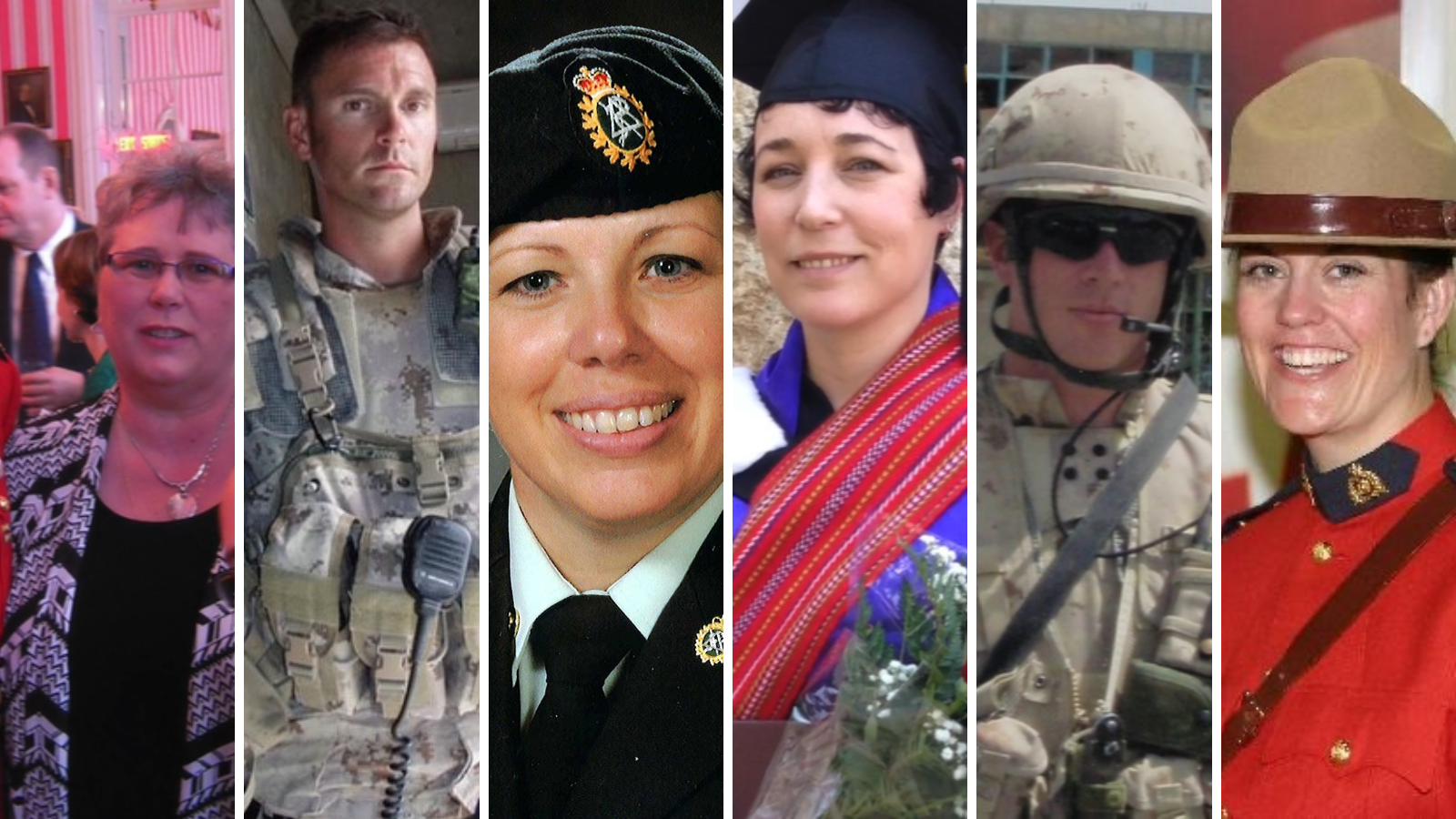

Transitioning from service in the Canadian Armed Forces (CAF) or Royal Canadian Mounted Police (RCMP) can evoke a mix of emotions for both Veterans and their Families. Balancing the pride of one’s service with the need to address trauma experienced during that time presents complex challenges on the path towards healing.
It is important to remember that if you experience these feelings, you are not alone. The Atlas Institute invites you to explore a new series of digital stories by Veterans and Veteran Families. United by a shared desire to tell their stories, these individuals convey their journeys towards self-healing in hopes of supporting others walking along the same path.
There will be two opportunities to join us on June 26, 2024, to view some of our newest digital stories from Veterans and Veteran Families. This event will be held in English with French auto captioning available.
Note: Each of these real-life stories is impactful in its own way and can affect each person differently. Please remember to prioritize your self-care as needed. If you need support, please visit our resources page for a directory of services available to current and former members of the military and RCMP and their Families.
This event will include two panel discussions, each featuring three of the individuals featured in these stories.
Be one of the first few people to watch these powerful real-life stories and take part in an important conversation about releasing the past and embracing change.
Registration is closed.
Every year, the Canadian Institute for Military and Veteran Health Research (CIMVHR) hosts an annual forum that brings together hundreds of researchers, policy makers, service providers, peer support organizations and intermediary organizations to present the latest health research focused on military and Veteran health.
This year, the Atlas Institute for Veterans and Families is participating for the second time since our inception. Our goal is to continue strengthening our networks and explore potential collaborations on both national and international scales. At the same time, we aim to share information and raise awareness about our research in the Veteran and Family mental health and well-being space. A key focus for us at the CIMVHR Forum 2023 is to continue advocating for the practice of bringing the experiences of Veterans and their Families forward in conversations about issues that affect them.
If you are attending the CIMVHR Forum 2023, we invite you to visit our booth and attend our podium and poster presentations to learn more about how, together, we are creating positive change for Veterans and Families across Canada.
Posters:
- Presenter: Andrew Nicholson, PhD, Assistant Professor, School of Psychology, University of Ottawa, and Clinical Research Director, the Atlas Institute
- Summary: Moral injury is a trauma syndrome that can emerge following perceived violations of deep moral beliefs by oneself or trusted individuals. This study examined the impact of sexual orientation minority stress (i.e., discrimination) on moral injury symptoms. Here, we will discuss novel themes surrounding moral injury development among sexual minorities.
- Presenter: Victoria Carmichael, MSc, Senior Knowledge Mobilization Specialist, the Atlas Institute
- Summary: This abstract summarizes the co-creation process and highlights key lessons learned from a recent project involving the development of an evidence-informed resource hub (MindKit.ca) with youth from Canadian military and Veteran Families. This information could be useful to inform future engagement work with youth.
Podiums:
- Presenter: Niki Hosseini-Kamkar, PhD, Neuroimaging Research Associate, the Atlas Institute
- Date/time: Wednesday, October 18, 3:35 p.m. – 3:55 p.m.
- Session: 7A05
- Summary: Experiencing trauma increases risk for developing various psychological problems, including posttraumatic stress disorder (PTSD). Here, we analyzed data from 83 neuroimaging studies. We found that experiencing trauma is linked with heightened amygdala reactivity and reduced prefrontal cortex activity (PFC). The amygdala is involved in processing threats, while PFC is involved in self-regulation and decision-making.
- Presenter: Jonathan Lieberman, BSc, PhD student, Neuroscience, McMaster University, under the supervision of Dr. Andrew Nicholson
- Date/time: Tuesday, October 17, 10:45 a.m. – 11:05 a.m.
- Session: 3D01
- Summary: We compared brain activity and clinical outcomes between two neurofeedback studies in which individuals with PTSD downregulated amygdala or posterior cingulate cortex (PCC) activity. Evidence suggests that downregulating the PCC, as opposed to the amygdala, may be more effective for reducing PTSD symptoms and normalizing PTSD-associated alterations in brain activity.
- Presenter: Sandhya Narikuzhy, BSc, PhD candidate, Neuroscience, McMaster University, under the supervision of Dr. Andrew Nicholson
- Date/time: Wednesday, October 18, 11:15 a.m. – 11:35 a.m.
- Session: 6C01
- Summary: Bodily self-consciousness is often compromised in individuals with posttraumatic stress disorder (PTSD). This could be due to functional alterations in the temporoparietal junction (TPJ), a brain region involved in multisensory integration. We wondered if functional connections of the TPJ might differ between PTSD and its dissociative subtype from healthy controls.
- Presenter: Cath Virelli, MHSc, Senior Knowledge Mobilization Specialist, the Atlas Institute
- Date/time: Monday, October 16, 11:20 a.m. – 11:40 a.m.
- Session: 1D02
- Summary: The Atlas Institute co-designed multimedia resources about intimate partner violence with members of the Veteran community. The resources reflect needs and lived experiences shared by these individuals. The resource development process suggests opportunities for optimizing projects that aim to meaningfully integrate the lived experiences of Veterans and Veteran Families.
- Presenter: Sara Rodrigues, Ph.D., Director, Applied Research, the Atlas Institute
- Date/time: Monday, October 16, 5:20 p.m. – 5:40 p.m.
- Session: 2B05
- Summary: Veterans Affairs Canada (VAC)’s well-being framework comprises seven domains, including housing and physical environment. This particular domain includes “the built environment (e.g. housing) as well as the natural environment (e.g. water and air quality),” with the desired outcome of “safe, adequate and affordable housing” (Pound, 2019). While VAC currently measures this domain using a single indicator – the percentage of Veterans among Canadian homeless – housing and physical environment is much broader and spans characteristics beyond just homelessness. Measures of housing and physical environment implemented across the literature are quite varied (Rautio et al., 2018), and there is no consensus on a standard measurement tool. This presentation will share the results of a review to identify and characterize instruments that measure this domain, report on their psychometric properties, and identify which provide the best reliability, validity and usefulness for Veterans and their Families.
- Presenter: Kate MacEachern, PhD, Senior Research Associate, the Atlas Institute
- Date/time: Tuesday, October 17, 2:30 p.m. – 2:50 p.m.
- Session: 4B01
- Summary: According to data from the Life After Service Survey (LASS), 29% of Veterans of the Regular Force reported fair or poor mental health in 2019 (Sweet et al., 2020). This is significantly higher than the 9% of the Canadian population reporting fair or poor mental health in the 2019 Canadian Community Health Survey (Statistics Canada, 2020). Given the implications of such a high prevalence of poor mental health for the Veteran community, it is important to substantiate the mental health status of Veterans in Canada and to identify potential risk or protective factors. The Canadian Longitudinal Study on Aging (CLSA) includes a Veteran subsample and provides an opportunity to explore the self-reported mental health in a Veteran sample. The purpose of this study will be to: i) determine if prevalence of self-reported mental health is similar for the Veteran cohort in the CLSA compared to LASS and ii) evaluate if socio-demographic, behavioural and health factors are differentially associated with self-reported mental health in the CLSA Veteran cohort compared to the LASS.
Content warning
If you find this content difficult and it brings up a range of emotions, we encourage you to care for your safety and well-being. If you are in distress, please call or text 9-8-8. If this is an emergency, dial 9-1-1.
Join us for a meaningful conversation dedicated to sharing information, resources and inspiration about Veteran Family mental health and well-being.
Building on the success of the first-ever national summit focusing on the needs and experiences of Veteran Families, the Atlas Institute for Veterans and Families is excited to announce that we will be hosting the second annual Veteran Family Virtual Summit in January 2024.
Veteran Family Virtual Summit 2024: Post-event summary report
It is crucial to acknowledge and prioritize the needs of Family members as individuals. Often serving as the main pillar of support for Veterans living with mental health issues, Veteran Family members can experience their own challenges that are unique to this vital role that they play. As such, they deserve access to knowledge, resources and supports that speak to their specific experiences and address their needs.
This two-part virtual summit remains free to attend and will once again bring together speakers from across Canada. Hear from experts in the field who will share valuable knowledge and insights on issues of critical importance to Families of Canadian Armed Forces (CAF) and Royal Canadian Mounted Police (RCMP) Veterans, and learn from the real-life stories and experiences of Veteran Family members.
Join us for this special opportunity to connect with other Veteran Families and share ways to foster resilience, healing and hope.
Agenda


Summit host: Laryssa Lamrock


Summit host: Polliann Maher
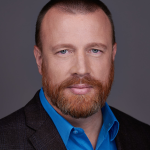

Summit emcee: Brian McKenna
National Strategic Advisor, Veterans
Atlas Institute for Veterans and Families
Family member, National Strategic Advisor, Families
Atlas Institute for Veterans and Families
Family member, Lived Expertise Lead, Families
Atlas Institute for Veterans and Families
![]()
![]()
President and CEO
Atlas Institute for Veterans and Families
Blending lived experience accounts, fascinating corporate case studies, leading-edge research and passionate arguments that the status quo is no longer acceptable in the field of mental health, Stéphane makes us ask ourselves: How did we miss the obvious? How did we miss our people?
In this keynote, Stéphane will draw from his autobiography in which he tells his story from the day he landed in the midst of the Rwandan genocide, through his journey of changing mental health culture in the Canadian military and developing national Guidelines for Peer Support with the Mental Health Commission of Canada, to his work today. He will focus on and encourage us to reflect on how a soldier’s mental health has an effect on Family members, and share quotes from his book featuring the voice of his spouse making the case that we can and must do more for Families.
CEO, Mental Heath Innovations – Disrupter of the status quo and Veteran
Pediatric chronic pain is a prevalent, costly and rising epidemic. It is linked to chronic pain and mental health problems (e.g. PTSD, anxiety, depression, suicidality, opioid misuse) into adulthood. Pain is transmitted across generations — having a parent with chronic pain and mental health issues confers risk for chronic pain in youth. Previous research has revealed that Veterans experience chronic pain at high rates, which places their children at risk for developing pain, and that pain is impacted by military culture and identity by all Family members.
Our research has shown that military culture and identity are integral in shaping the experience of pain, not only among Veterans, but among their spouses and children. Expressing pain comes at a cost: it counters the hierarchy of “mission-men-self” and can lead to serious social, occupational and emotional ramifications, including being “cast from the herd” and being medically released. A culture of stoicism and concealing pain is fostered, as is an incredible sense of pride and resilience. Trauma and pain are integrally linked and can be transmitted across generations and within Families through neurobiological (epigenetics) and social (parenting) mechanisms. Even in the face of extreme trauma, Families can be resilient. Emerging evidence is revealing that social support and community can buffer against the risk of parental trauma on pain development in youth.
Melanie Noel will present on her translational program of research examining the intergenerational transmission of pain and trauma in Veteran Families and other Families living with chronic pain. This research is co-led by and in partnership with Veterans and their spouses and children. In addition to characterizing this issue, she will share how her team is also co-designing solutions with Veteran Families to foster resilience by harnessing their incredible and unique strengths.
![]()
![]()
Professor of Clinical Psychology, University of Calgary
This presentation will provide an overview on how grief and bereavement are understood today. We will then explore and learn from one another how grief is carried and often overlooked in Veteran Families. Trauma and vicarious trauma will also be discussed as a potential complicating factor in grief. Strategies to assist grief and loss will be introduced.
Throughout their lives, members of the military and Veteran community experience challenges and transitions that are unique to their reality. Various losses can dot the path of these Families, such as the loss of a home, a network, a job, a friend, or physical or mental health.
This session will address the following questions: What is a transition? What is grief? What are the stages of grief?
We will shed some light on the different kinds of grief that community members may go through, with the aim of helping them better understand and care for themselves along the way, and equipping them to live with grief more gently.
Veteran Family members are often the first line of support for their loved ones living with mental health challenges. Compassion fatigue can be common when Family members have ongoing, direct contact with loved ones who are in crisis or require significant support. This panel of Veteran Family members will give voice to those who have been through this journey firsthand, sharing their lived experiences, what resources or support helped them and how they have learned to have a better life/support balance. Panel will be 50 minutes in length.
Panellists:
![]()
![]()
CAF Veteran
![]()
![]()
MD FRCPC, Psychiatrist
![]()
![]()
Spouse of a CAF Veteran
Moderators:
![]()
![]()
Family member, National Strategic Advisor, Families
Atlas Institute for Veterans and Families
Family member, Lived Expertise Lead, Families
Atlas Institute for Veterans and Families
Giving a voice to the Veteran and Family community, one story at a time
National Strategic Advisor, Veterans
Atlas Institute for Veterans and Families
Family member, National Strategic Advisor, Families
Atlas Institute for Veterans and Families
Family member, Lived Expertise Lead, Families
Atlas Institute for Veterans and Families
Saturday, January 27, 2024 | 11:00 a.m. – 4:30 p.m. Eastern time
National Strategic Advisor, Veterans
Atlas Institute for Veterans and Families
Family member, National Strategic Advisor, Families
Atlas Institute for Veterans and Families
Family member, Lived Expertise Lead, Families
Atlas Institute for Veterans and Families
![]()
![]()
President and CEO
Atlas Institute for Veterans and Families
When Daphne McFee, an RCMP Veteran, searched ways to help her children understand the challenges of living with a parent with PTSD, she found little information available. Realizing that “When PTSD enters a home, everyone is impacted by it,” she embarked on a heartfelt journey that not only encompassed the highs and lows experienced by her Family, but also inspired her to write a children’s book.
Her story isn’t just about living with someone with PTSD, depression and hyper-vigilance. It is a testament to resilience, love and the collective strength of a Family.
By sharing her journey, Daphne hopes to light the path for other Families dealing with similar challenges.
![]()
![]()
Retired RCMP Sergeant, Certified Yoga Instructor and Author
Mild TBI (a.k.a. concussion) has been called a “silent epidemic” because most people have no physical signs of injury. Mild TBI can also be silent because Veterans either do not recognize they have had an injury or assume their cognitive challenges are from PTSD. These cognitive challenges can affect every aspect of a Veteran’s daily life and can be a source of stress and burden for Families. In this session, we will discuss mild TBI effects on Family life and share practical tips to support Families in managing cognitive challenges at home.
Professor and Assistant
Dean for Speech-Language Pathology in the School of Rehabilitation Science at McMaster
At their best, close relationships with Family and friends support good mental health and stress-resiliency by providing purpose, comfort, a sense of belonging and happiness. However, for people facing operational stress injuries (OSIs), navigating the depth, emotions and demands of close relationships often becomes complicated. This presentation will outline common impacts of OSIs on close relationships, explore useful psychological frameworks for understanding these changes and share practical strategies for those with OSIs and those supporting them to move towards more fulfilling and positive connections.
We often talk about the influence of military culture on a soldier’s own identity and the imprint that persists despite the uniform being removed. This transition between the military world and civil society presents itself in the form of an identity crisis through the loss of benchmarks and means to redefine oneself. However, what about our Families, our loved ones, who live in the shadow of this same state of crisis?
“I was Colonel Brookman’s wife, I had status! Who am I now?”
Together, we will address this idea of redefining our roles as a Family.
For both those who don the RCMP uniform and their loved ones, there is often a tangible impact of the dedication needed to serve Canadian communities. Many RCMP Veteran Families go through their own unique challenges and experiences while standing alongside those they love – a form of service in its own right.This panel of RCMP Veteran Family members will share the lived experiences of that special strength and courage, with participants talking about how knowledge, community and hope has played a significant role in their journeys.
Panellists:
![]()
![]()
RCMP Adult Child
Moderators:
![]()
![]()
Family member, National Strategic Advisor, Families
Atlas Institute for Veterans and Families
Family member, Lived Expertise Lead, Families
Atlas Institute for Veterans and Families
Giving a voice to the Veteran and Family community, one story at a time
National Strategic Advisor, Veterans
Atlas Institute for Veterans and Families
Family member, National Strategic Advisor, Families
Atlas Institute for Veterans and Families
Family member, Lived Expertise Lead, Families
Atlas Institute for Veterans and Families
NOTE: Clinical Support will be available throughout the Summit.
Bios
Brian McKenna
Brian McKenna served for 19 years in the Canadian Army, retiring as a Warrant Officer. In that time, he served in Bosnia twice, both as a signaller and then a section commander. Brian then deployed to Afghanistan twice, once with the Canadian Army and once again as a NATO counter-improvised explosive device instructor. While seeking medical treatment post-release, Brian joined with other Veterans in petitioning the government for the creation of a centre focused on Veteran and Family mental health issues, resulting in the establishment of the Atlas Institute. Brian currently serves as National Strategic Advisor, Veterans, for the Atlas Institute.

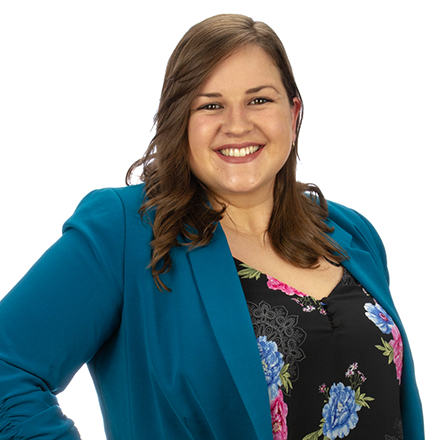

Christina Harrington
Christina holds a PhD in social work and has practised in clinical roles for more than 20 years. She began her career in community and hospital-based mental health programs and later practised in critical care at a regional trauma centre.
Christina moved into private practice in 2009. She owns and is the Director of Social Work Solutions Canada in Hamilton, Ont. The practice offers an array of mental health services and treatment modalities. In this role, she also provides supervision to other social workers.
Christina enjoys opportunities to teach as sessional faculty and currently is working with Dalhousie University in Halifax, N.S.
Academia feeds her nerdy side and she enjoys research, publishing and serving as a peer reviewer for international journals in death, dying and bereavement.
Christina’s doctoral dissertation focused on the bereavement experiences of Family members of our fallen heroes in Afghanistan.
For Christina, working with front-line and first-response roles is near and dear to her heart. She was raised in a military Family where her dad doubled as a part-time volunteer firefighter and her mother was a nurse. Christina is now proud to be part of a police Family.
Outside of work, Family is very important to her. She spends much of her time keeping up with her fiancé and their many children.



Daphne McFee
Daphne McFee is a retired RCMP sergeant who has spent most of her career within national security threat assessment and investigations. She joined the RCMP in 1986 and was released on a medical discharge in 2015. Daphne is a certified yoga teacher, poet and published author of two children’s books. Her second book, It’s Not Cuz of Me, focuses on helping children understand PTSD and facilitating discussions within the Family unit. When her own husband was diagnosed with severe PTSD, she realized that there was little to nothing out there to help their four children understand what was happening. This is ultimately what led her to create the story.
Daphne’s interests include writing, drawing, painting, swimming and walking her dog. She and her husband Paul have been together for 28 years and reside in Ottawa. They enjoy travelling and spending quality time with Family, especially with their young granddaughter.
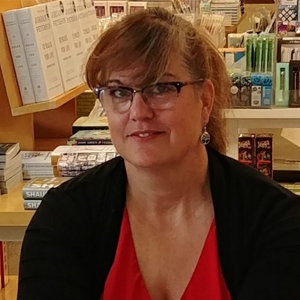


Elizabeth Gough
Elizabeth Gough is a spouse of a CAF reservist. Her husband, Andrew Gough CD, is a member of the military police/Close Protection Operator and medically retired police sergeant with the London Police Service. In 2019, they founded V-EH! Veterans and Everyday Heroes, a federal not-for-profit organization. They have spoken on their journey through an OSI to offer their reflections on posttraumatic growth (PTG).
Professionally, Elizabeth is an Early Years Advisor with the Ontario Ministry of Education. She is also a dedicated community volunteer and a leader in several initiatives that champion sport, children and women’s causes. Elizabeth and Andrew have two teenage children and reside in St. Thomas, Ont.
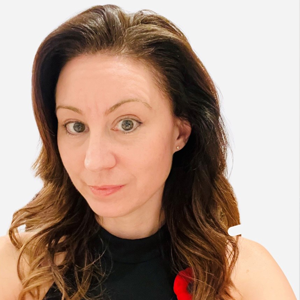


Fardous Hosseiny
Fardous Hosseiny (he/him) is the President and CEO at the Atlas Institute for Veterans and Families (formerly the Centre of Excellence on PTSD), located at the Royal Ottawa Mental Health Centre in Ottawa.
Before coming to Atlas, Fardous was most recently the interim National Chief Executive Officer and the National Director of Research and Public Policy, at the Canadian Mental Health Association.
His research work focuses on strategic policy issues related to mental health system transformation, parity legislation, Veteran and their Families mental health, substance use and addiction and mental health for newcomers and underrepresented groups. Fardous is also a frequent commentator on these issues for Global News, CBC, CTV News, The Globe and Mail, The Toronto Star, among others.
Fardous was a part of the Canadian delegation to the 73rd Session of the United Nations General Assembly and played a role in the development of the first ever United Nations event dedicated to mental health.
Fardous also serves on many national and international committees, including as a member of the Five Eyes Mental Health Research and Innovation Collaboration, an executive advisor on the Global Alliance for Mental Health Advocates (GAMHA), co-chair of the Research Reference Group at Atlas Institute and past co-chair for the Canadian Alliance for Mental Illness and Mental Health (CAMIMH) and Canadians for Equitable Access to Depression Medication (CEADM).
Fardous is a clinical investigator at the University of Ottawa Institute of Mental Health Research.
Fardous completed a Master of Science with a focus on the neuroscience of addiction and a BSc Honours, both at the University of Toronto. He also holds a Certified Health Executive (CHE) designation from the Canadian College of Health Leaders.
Fardous is on the Board of Directors – Canadian Juries Commission and Renascent Addiction Treatment Centre.


Hélène Le Scelleur
Captain (Ret’d) Hélène Le Scelleur enlisted in the CAF in March 1990 when she was only 17 years old. She joined the first female cohort in the infantry trade at the Régiment de Maisonneuve in Montreal. Hélène’s love for service to her country led her to join the Regular Forces in 1999 where she served a further 17 years, primarily as a health care administrator. During her long career, Hélène has had numerous assignments and deployments, notably in the former Yugoslavia on two occasions and in Afghanistan between 2007 and 2008.
Due to the recognition of her work in Afghanistan, Hélène received a commendation from the Commander of the Expeditionary Forces Command and was also chosen to become the aide-de-camp to the former governor general of Canada, the Right Honourable Michaëlle Jean. Sadly, Hélène’s career came to an end in 2016 following a diagnosis of posttraumatic stress disorder linked to her last mission in Afghanistan. Deciding not to give up in the face of this irreversible decision, she pledged to pursue doctoral studies with the aim of finding new solutions to deal with the identity crisis that follows the transition to post-service life for military personnel living with an operational stress injury.
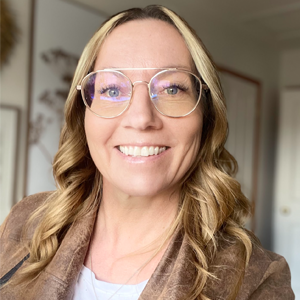

J Don Richardson
J Don Richardson is a psychiatrist and a professor in the Department of Psychiatry at Western University. He serves as the Medical Director of
St. Joseph’s Health Care London’s Operational Stress Injury Clinic in London, Ont. and the Scientific Director at the MacDonald Franklin OSI Research Centre at the Parkwood Institute. He is the Medical Advisor for the Atlas Institute. He holds a fellowship with the Canadian Institute for Military and Veteran Health Research (CIMVHR). For more than 25 years, he has been a clinician-researcher and educator, with more than 90 peer-reviewed articles and chapters focusing on military and Veteran health.


Jeanette Slater-Norminton
Jeanette Slater is the wife of a Veteran and the mother of a Veteran, both of whom served with the Royal Canadian Navy. Jeanette was born and raised in Nova Scotia, moving to Ontario where she worked with adolescents and young adults in the secondary school system. After many years of helping her son through his diagnosis and treatment of PTSD, Jeanette lost her son tragically in 2018 in a vehicle accident. She will share how she and her Family are learning to read this unfamiliar map that is their new navigation, reminding each other that grief is not a solitary journey.
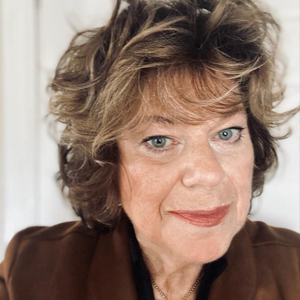

Jim Wong
Staff Sergeant (Ret’d) Jim Wong considers himself fortunate to have realized his dream of becoming an RCMP officer. He retired as a Detachment Commander after completing 37 years of service, which encompassed both uniformed and plainclothes duties, primarily in Alberta and Ontario.
Currently residing in Alberta, Jim is part of a blended Family, raising four boys and now enjoying the company of four grandchildren – three boys and one girl. After retiring from the RCMP, he embarked on a 13-year career as a Security Consultant before transitioning into the oil and gas sector, from which he recently retired.
Jim’s passion lies in ensuring that all Canadian Veterans and their Families have easy access to the assistance they need. He is committed to making this support readily available, as he understands that Veterans and their Families often hesitate to seek help, resulting in them silently suffering.
Jim is dedicated to changing this attitude, ensuring that our Veterans and their Families receive the support they deserve.
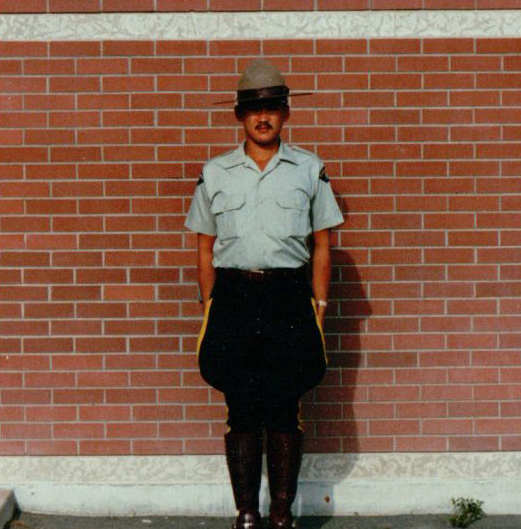

Kevin Capobianco
Kevin Capobianco earned his PhD in clinical psychology at the University of Waterloo. He has experience assessing and treating PTSD and other mental health challenges in hospitals, operational stress injury (OSI) clinics and other outpatient clinic settings. He finds working with first responders, CAF members and their Families particularly rewarding.
He integrates various psychotherapeutic techniques in his clinical work to tailor his approach to fit the needs of each client. He strongly believes in the value of sharing scientific and clinical insights from psychology with those outside the profession through outreach events.


Laryssa Lamrock
Laryssa Lamrock is the National Strategic Advisor for Families at the Atlas Institute for Veterans and Families. She has a unique blend of experiences in nursing and military Family deployment support. In addition, she has extensive knowledge and expertise in the field of peer support as well as lived experience as the spouse of a Veteran living with PTSD. She is also the daughter and mother of military members. Laryssa draws from these experiences as she advocates passionately for and represents the voices of military and Veteran Family members.
After 12 rewarding years with the Operational Stress Injury Social Support (OSISS) program, Laryssa believes strongly in the importance of Family involvement in the recovery process. It can improve the prognosis of mental health issues and have positive impacts on Family functioning and wellness. She feels many more services and programs can be developed and made accessible to those supporting those who serve and have served in the Canadian military, particularly parents and adult children of Veterans.
Her work has provided her with numerous outreach opportunities, including speaking engagements at the National Conference on PTSD, an appearance before the House of Commons Standing Committee on Veterans Affairs, and at the Canadian Embassy in Washington, D.C. She serves on a number of committees, including the MacDonald Franklin OSI Research Advisory Council and the VAC Ministerial Advisory on Families. She is the author of the article “Loving a Broken Soul – The lived experience perspective on the implications of Veterans’ moral injuries for Families,” published in the Journal of Military, Veteran and Family Health. Laryssa has also co-developed and co-facilitated a series of OSI Family workshops.
Recently, her focus has also broadened to include first responders and their Families — an impassioned interest as her son is a first responder. She is driven to help identify the gaps and share lessons learned from the military and Veteran community. Laryssa has realized that it doesn’t matter what uniform you or your loved one wears.
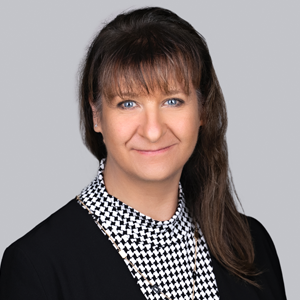
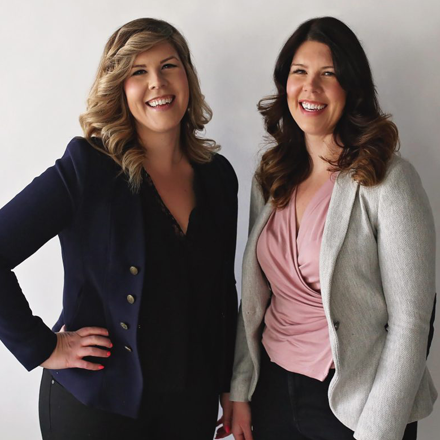


Lyn S. Turkstra
Lyn S. Turkstra, PhD, CCC-SLP, BC-NCD(A) is a professor and Assistant Dean for Speech-Language Pathology in the School of Rehabilitation Sciences at McMaster University. Her research focuses on effects of traumatic brain injury (TBI) on cognition and communication. She is co-author of international practice guidelines for TBI rehabilitation and is a TBI subject matter expert for the U.S. Department of Defense and Veterans Health System.
She and Jackie Bosch, PhD, Assistant Dean for Occupational Therapy at McMaster, are leading a clinical trial of cognitive rehabilitation for Veterans with mild TBI, in collaboration with the Atlas Institute.
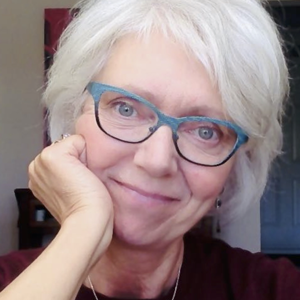



Maddison Kelly
Maddison Kelly grew up in southern Alberta, where her father was an RCMP officer in Gleichen and Strathmore. This childhood experience, deeply influenced by her parent’s role in law enforcement, significantly shaped her character and career path.
Currently employed at a children’s hospital in Alberta, Maddison has directly observed the challenges associated with PTSD, particularly through her father’s experiences, as well as the mental health issues faced by frontline workers.
Her father’s dedication to helping others, regardless of the scale, deeply inspired her.
She is thrilled to be part of this panel, embracing it as a means to continue her father’s legacy and to share the collective story of her and her father.
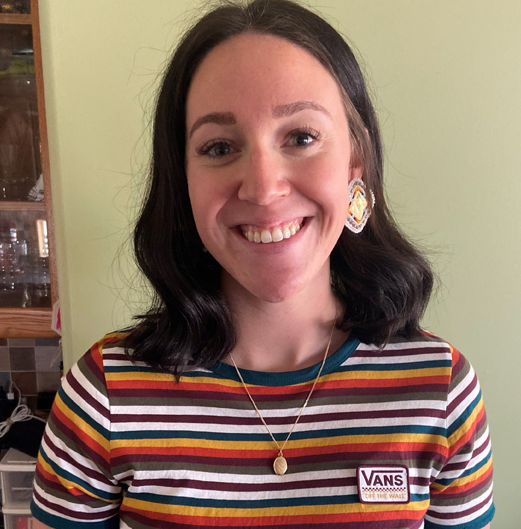



Marie-Eve Genest
Marie-Eve Genest, GC, Veteran Family Program Coordinator / Valcartier MFRC Psychosocial Services Manager
With a bachelor’s degree in psychology and a master’s in guidance counselling, Marie-Eve Genest has nearly 20 years’ experience in psychosocial intervention, mainly in community organizations. Over the years, she has worked with women who have experienced domestic violence, supported young adults with employability issues and managed projects regarding the status of women.
Having joined the Valcartier Military Family Resource Centre in 2015 as a Guidance Counsellor, she then had the privilege of being responsible for setting up and developing the Veteran Family Program from the very beginning of its pilot phase. She continues to work with Veteran Families as well as taking on an assignment as Psychosocial Services Manager, making her the right-hand person for the Valcartier MFRC’s Psychosocial Intervention Sector Coordinator.
Marie-Eve is a mother of two children aged 10 and 12, whose father is an active military member. Her past experience as a military spouse sparked Marie-Eve’s interest in supporting members of the military and Veteran community.
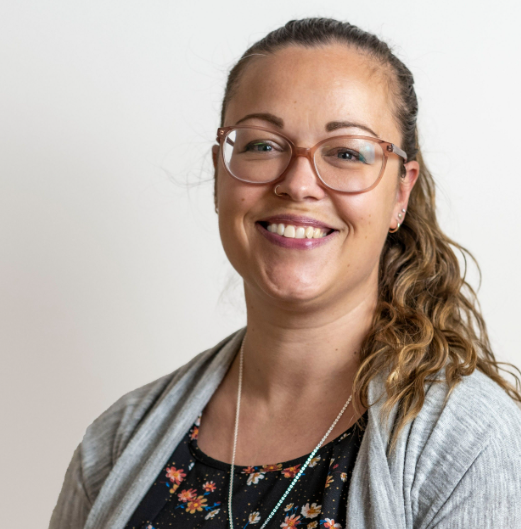



Melanie Noel
Melanie Noel, PhD, RPsych is a professor of clinical psychology at the University of Calgary and a full member of the Alberta Children’s Hospital Research Institute and the Hotchkiss Brain Institute. She directs the PEAK (Pain Education, Advocacy, Knowledge) Research Laboratory within the Vi Riddell Children’s Pain and Rehabilitation Centre at the Alberta Children’s Hospital.
Her expertise is on children’s memories for pain and co-occurring mental health issues and pediatric chronic pain. She has published guiding conceptual models of children’s pain memory development, co-occurring PTSD and chronic pain, and fear-avoidance in 183 peer-reviewed publications.
She is passionate about partnering with people with lived experience to transform how we understand and treat people with pain. She is an advocate for the use of developmentally tailored interventions for pediatric pain management and serves on committees to promote and implement evidence-based interventions within her children’s hospital and beyond. As an evidence lead on the Help Eliminate Pain in Kids & Adults team, she co-authored clinical practice guidelines on pain and fear management for vaccine injections. Many of these recommendations were adopted by the World Health Organization.
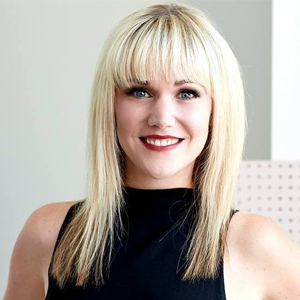



Paul Woods
Corporal (Ret’d) L. Paul Woods has served on a variety of units including general duty, the Emergency Response Team, Emergency Medical Response Team and peacekeeping operations, retiring with 35 years’ service in the RCMP. Paul was also a Reservist. He was awarded the Meritorious Service Medal in June 1999 for his response to a mass casualty event while on the United Nations advance team mission to Haiti in 1994.
His time in uniform however left lasting injuries. Two specific events while in Haiti led to being diagnosed with severe posttraumatic stress disorder (PTSD) and depression. As a result of his operational stress injuries (OSIs), he wanted to help others who are also suffering. Paul has been a longtime peer support volunteer, helping both RCMP and CAF Veterans with OSIs. Paul speaks openly in an effort to break the stigma. He is now the longest-serving peer support volunteer with Operational Stress Injury Social Support (OSISS) since it began under LCol (Ret’d) Stéphane Grenier, to whom he owes a great debt of thanks.
Paul has been married for more than 25 year to RCMP Sergeant (Ret’d) Daphne McFee. They have raised an extended Family with four children who are now adults. On his path through PTSD treatment and peer support, Paul realized that his Family also live with the impact of PTSD and needed support. This became the reason in part for his wife to write a children’s book on the questions that their own kids asked about PTSD.
He continues to provide support to anyone in need. As he says, “To leave no one in the hurt locker.”




Polliann Maher
Polliann Maher is the Lived Expertise Lead, Families with the Atlas Institute for Veterans and Families. She is the spouse of a Veteran with PTSD and brings more than 20 years of lived experience navigating the mental health system to her role. She has a background in community service work, earned by returning to school through the Veteran Affairs Rehabilitation Services and Vocational Assistance Program in 2009. Polliann spent slightly more than 10 years providing peer support to Family members with the Operational Stress Injury Social Support (OSISS) program as a Family Peer Support Coordinator in southwestern Ontario. This experience allowed her to utilize her own lived experience and her understanding and knowledge of mental health to help peers navigate the systems that can be so overwhelming to many Family members. She was instrumental in the planning and executing of online opportunities for Family members during the pandemic with a psychoeducational webinar series through the OSISS program. Polliann is passionate about educating the Veteran community and sharing her knowledge of the resources that are available to them. She is a strong advocate around changes that encompass the Family, which are many times forgotten or an afterthought.
Polliann has also served on several committees, including the MacDonald Franklin OSI Research Advisory Council, and the Board of Directors with the Southwestern Ontario Military Family Resource Centre (MFRC). She is the co-author of the article “Coping as a spouse of a military Veteran with Post-Traumatic Stress Disorder (PTSD) during the COVID-19 pandemic,” published in the Journal of Military, Veteran and Family Health. Polliann has also developed and co-facilitated a series of OSI Family workshops with the Parkwood OSI clinic.


Sandy Phillips
Sandy Phillips is the wife of a medically retired RCMP officer who released due to severe PTSD. She is a mother of two and an educational assistant. Sandy continues to advocate, support and manage services for her husband while learning to cope with his OSI. Since she knows how challenging these situations are to navigate while dealing with mental health injuries, Sandy has made efforts to assist other first responders in need. The Family lives in southwestern Manitoba.

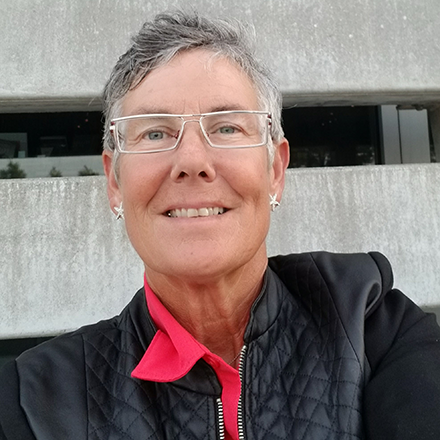

Stéphane Grenier
When it comes to mental health, Stéphane Grenier walks the talk.
Indeed, Stéphane’s riveting keynotes are not only thought-provoking, but also lead to tangible action and sustainable change for those leaders who are prepared to rethink how they support their people.
He was appointed to the Order of Canada and awarded an honorary Doctor of Laws degree by the University of Guelph and Humber College for his contributions to the field of workplace mental health.
His autobiography, After the War: Surviving PTSD and Changing Mental Health Culture, tells his story from the day he landed in the midst of the Rwandan genocide, through his journey of changing mental health culture in the Canadian military, developing national Guidelines for Peer Support with the Mental Health Commission of Canada, all the way to creating Mental Health Innovations (MHI); a consultancy that leads innovative and sustainable change in organizations to enhance the mental health of their people.
Today, he and his business partners, along with countless associates, develop non-clinical mental health interventions as a complement to traditional clinical care for private and public sector organizations, as well as for provincial healthcare systems.
Stéphane’s vision is a world where people no longer face barriers to good mental health.
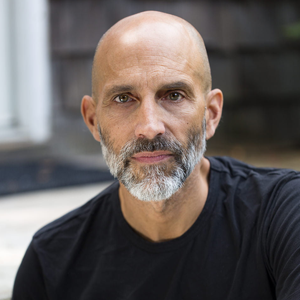


Tabitha Beynen
Tabitha is a retired master corporal who served as a CAF medic. Her story of her experience with PTSD highlights the unique struggles related to women’s mental health, being in survival mode, numbness and learning to live again with feelings and emotions.
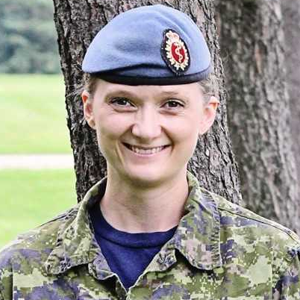




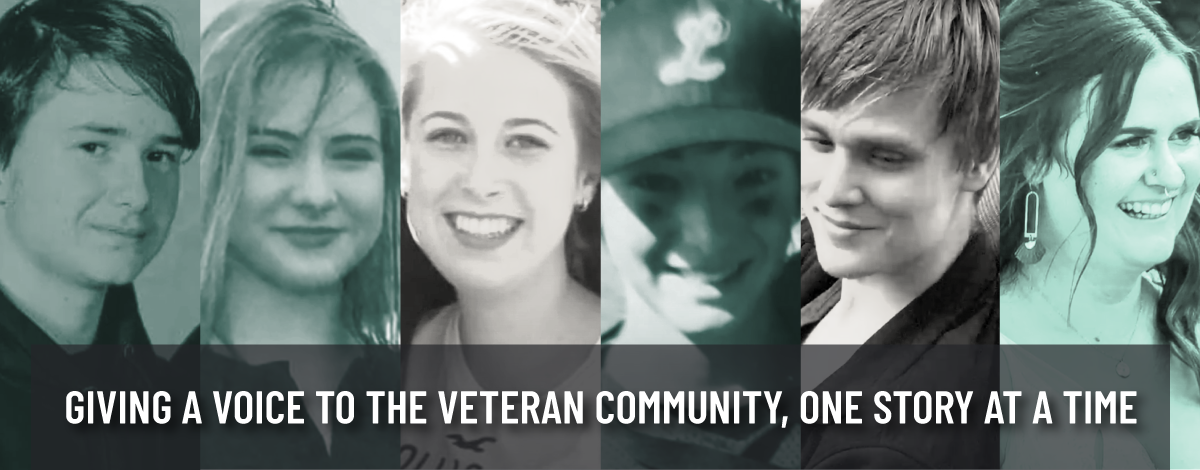

Having a Family member who has served in the Canadian Armed Forces (CAF) or Royal Canadian Mounted Police (RCMP) is often a source of pride for the children of Veterans. At the same time, Families can be a tremendous support to those who have served, especially if they are living with a post-traumatic stress injury (PTSI).
If you are supporting a Veteran with a PTSI, you are not alone. The Atlas Institute would like to invite you to explore a new series of short films by young people talking about what it’s like to have a Veteran with a PTSI in the Family, and their journeys towards healing and hope.
Join us on April 25, 2023 for this special virtual screening featuring young Veteran Family members telling their own stories.
This event will include a panel discussion with several of the Veteran Family members featured in the short films.
Be one of the first few people to watch these powerful real-life stories and take part in an important conversation about the impacts of PTSI.
The Veteran Family Virtual Summit 2024 is now open for registration. Learn more at atlasveterans.ca/community/events/family-summit-2024/
The goal of the Veteran Family Virtual Summit was to empower Families with information, tools, and resources about Veteran and Family mental health by exploring topics such as compassion fatigue, impacts on children, and effects on relationships.
This virtual summit brought together speakers from across Canada, where experts in the field shared their knowledge and insights on issues of critical importance to military and RCMP Families.
Veteran Family Virtual Summit 2023: Summary report
Keynote Speakers
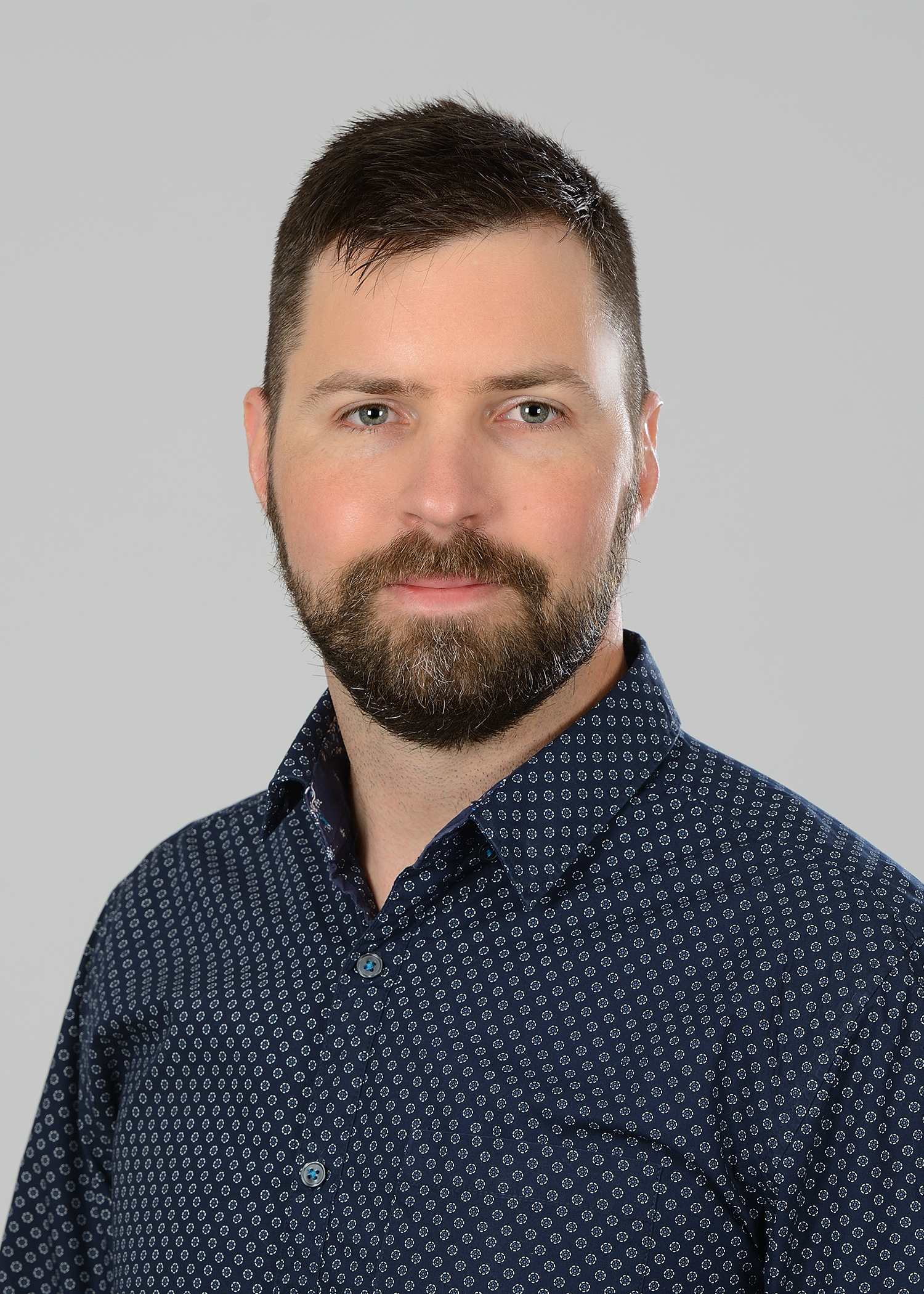

Guy Dallaire
Breaking the Family mold
Guy Dallaire was born into a multigenerational military family. He enrolled in the Canadian Armed Forces in 2005, serving in both the Reserve and Regular Force until a medical release in 2020. In 2021, Veterans Affairs Canada recognized his diagnosis of post-traumatic stress disorder (PTSD). Today, Dallaire continues to work for the Department of National Defence as a public servant. He devotes much of his spare time to researching the impacts of multigenerational trauma on adult children of Veterans and first responders. His findings will be published in an upcoming book.


Kathleen Mills
Chasing Freedom, combat injuries don’t just happen on the battlefield
Kathleen Mills is an executive coach and certified yoga teacher. She provides yoga and trauma training that includes Yoga Nidra for Veterans. She also holds a master’s degree in leadership and several fitness and personal training certifications. A proud mother to two grown children, she lives in Cochrane, AB, with her spouse, Darryl and her dog, Zeus. “Chasing Freedom: My Story of Service, Sacrifice and Redemption” is her first book, but she has also had her poetry published in several sources.
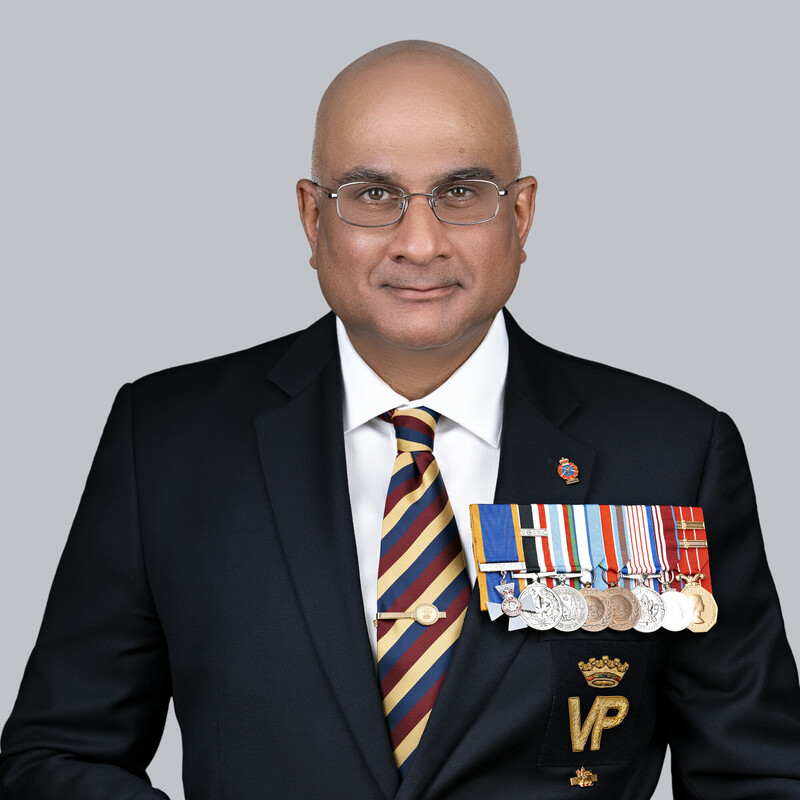

Huf Mullick
Lived Expertise Lead, Veterans
Lived Expertise Lead, Veterans – Atlas Institute
Huf Mullick’s interest in the military started as a young boy growing up in Vancouver. He enrolled in the Air Cadet program in the early 1980s and then joined the CAF in 1982 as a Reservist with the Royal Westminster Regiment. His time with the “Westies” was the impetus to join the Regular Force in 1983. Huf served full-time with the Princess Patricia’s Canadian Light Infantry for the next 25 years. His tours of duty included overseas service with North American Treaty Organization and the United Nations. At home, Huf’s various postings included military exercises across Canada, the United States, and numerous postings such as the Canadian Forces Leadership and Recruit School in Saint-Jean-sur-Richelieu, Quebec and the Canadian Forces Recruiting Centre in Vancouver. In 2007, Huf transitioned out of full-time service back into the Reserves and his final duty was as the Regimental Sergeant Major of the British Columbia Regiment. Huf retired in May 2021 after receiving his commission and the Order of Military Merit. He joined the Atlas Institute for Veterans and Families in November 2021 as the Lived Expertise Lead, Veterans.
Agenda
Raising awareness on intergenerational trauma within the military and first responder communities
When we think about Families and PTSD, the conversation often focuses on caregiving. While this can be an important role, families are more than the support systems to the person living with an operational stress injury. Families matter, in their own right, independent of the individual with the mental health issue. Families incur their own issues and needs through service. Families need support in their caregiving roles but also for their direct needs, not just as an extension of the organization or health care team.The presentation discussed a Family-centred approach to dealing with operational stress injuries.
Professor and Graduate Coordinator
Department of Family Studies and Gerontology, Mount Saint Vincent University
![]()
![]()
Associate Clinician, Co-Founder of Shoulder to Shoulder, and Director of Warrior Kids Program with Wounded Warriors Canada
Associate Clinician, Co-Founder of Shoulder to Shoulder, and Director of Warrior Kids Program with Wounded Warriors Canada
Veteran Family members often have a quiet strength and their own brand of courage. This Veteran Family lived experience panel gave voice to that strength and courage by sharing how knowledge, community and hope played a significant role in their journeys.
Moderators
We see you, we are you.
Giving a voice to the Veteran and Family community, one story at a time
Panelists:
Bios
Aînée Geri Musqua LeBlan
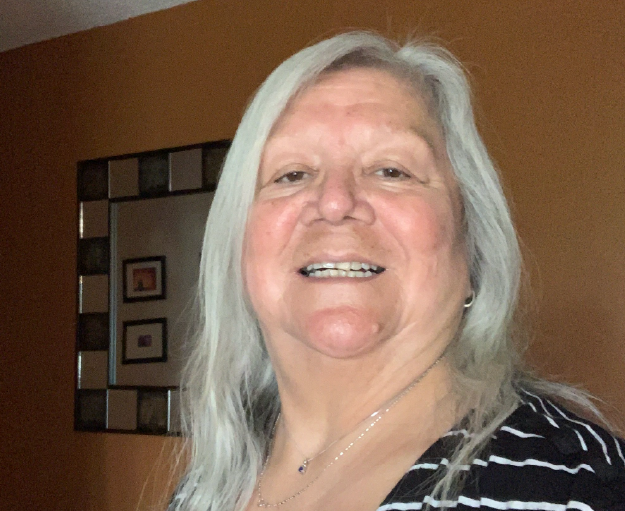

Bethany Easterbrook, Adult Child
Bethany Easterbrook (she/her) is a clinical psychology PhD Candidate at McMaster University, and an Atlas Institute Family Reference Group member. Her father served in the CAF for 29 years and her brother is a currently serving CAF member. She previously obtained her undergraduate degree in kinesiology with a major in psychology from the University of Toronto, and a master’s degree in health research methodology from McMaster University. Her doctoral research focuses on moral injury and mental health outcomes in military members and public safety personnel.



Diane Welburn, CAF Veteran
Diane Welburn joined the Canadian Armed Forces, Infantry in 1988. Sometime later, she then transferred as a supply technician. Her postings were Wainwright, Calgary and Edmonton in Alberta, Comox, B.C. and Shilo, Man. Throughout her career, she completed three tours in Bosnia, Egypt and the United Arab Emirates. She retired as a Warrant Officer from the Canadian Armed Forces in December 2013. Following her retirement, she took some time off to go fishing and see what she wanted to do with a second career. In 2014, she received an opportunity to work with Veterans and still-serving members with the Department of National Defence’s Operational Stress Injury Social Support (OSISS) program as a Peer Support Coordinator and knew it would be a great fit for her. She was in this role from August 2015 until February 2022. She has since retired and now live in Ontario where she is involved with the Royal Legion, gets to spend quality time with her family and leisure time fishing while looking for opportunities to be involved with the military and Veteran community.
NOTE: As one of the first women to enlist in the Infantry combat trade, she openly shares her experiences of facing abuse, discrimination and harassment while proving herself as an infanteer. What helped her overcome the pain and the anguish was her strength, resilience and the power of kindness.



Dr. Candice Monson
Candice M. Monson, PhD, is a professor of psychology at Toronto Metropolitan University. Dr. Monson is one of the foremost experts on traumatic stress and the use of individual and conjoint therapies to treat PTSD. She has been externally funded and has published extensively on the development, evaluation and dissemination of PTSD treatments and interpersonal factors in trauma recovery. She has co-authored seven books, including “Cognitive Processing Therapy: A Comprehensive Manual and Cognitive-Behavioural Conjoint Therapy for PTSD”, and has published more than 150 publications. Dr. Monson is well known for her efforts in training clinicians in evidence-based assessments and interventions for PTSD.
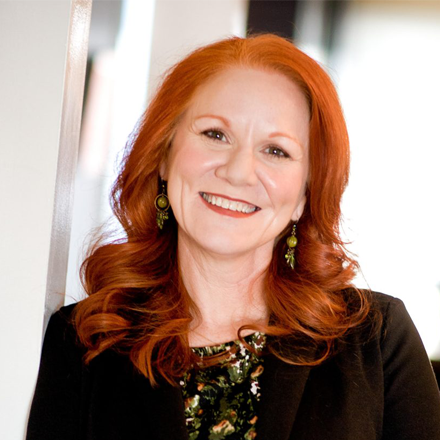

Dr Anthony Nazarov
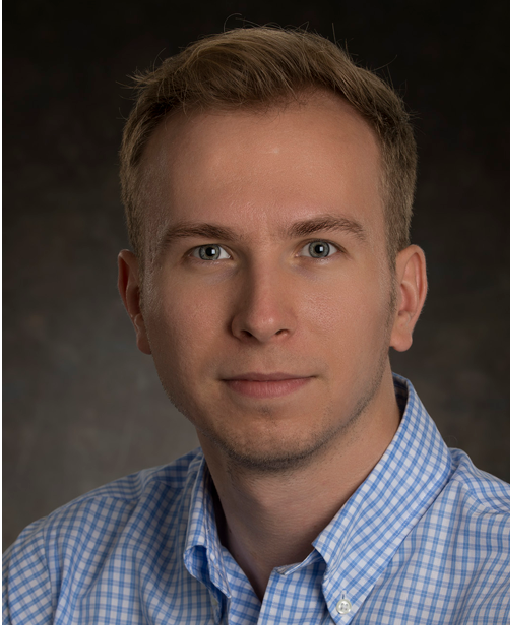

Dr. Helena Hawryluk
Dr. Helena Hawryluk, PhD, RSW and Jerris Popik, MSW, RSW, are co-founders of Families First: Supports for Occupational Stress Inc. and directors of the National Warrior Kids Programs offered through Wounded Warriors Canada, available to children and youth from military and first responder families impacted by a parental psychological injury.
Dr. Helena Hawryluk and Jerris Popik have spent more than a decade creating a space for the development and provision of meaningful mental health services for Veteran and first responder Families. They believe in critically examining what the research offers in terms of new knowledge on this population and translating this into evidence-informed practice.
Dr. Hawryluk completed her undergraduate degree in psychology at Concordia University, a Bachelor of Social Work from the University of Calgary, followed by her Master of Clinical Social Work and then her PhD with the Faculty of Social Work at the University of Calgary. Dr. Hawryluk was awarded the Wounded Warriors Doctoral Scholarship for her research with youth in military Families impacted by PTSD, post-Afghanistan war.
Jerris Popik received an applied psychology degree from Concordia University and her Master of Clinical Social Work from the University of Calgary. Both have practised as registered social workers for more than 15 years with Families of the Canadian Armed Forces and public safety personnel.




Dr. Heidi Cramm
Dr. Heidi Cramm, PhD, OT Reg. (Ont.) is an occupational therapist and associate professor in the School of Rehabilitation Therapy at Queen’s University. As research lead for the Families Matter Research Group, she engages in research and knowledge mobilization around mental health and trauma, focusing on the Families of Military, Veterans and public safety personnel. Dr. Cramm also serves as the Research Advisor, Military and Veteran Families, for the Canadian Institute for Military and Veteran Health Research (CIMVHR).
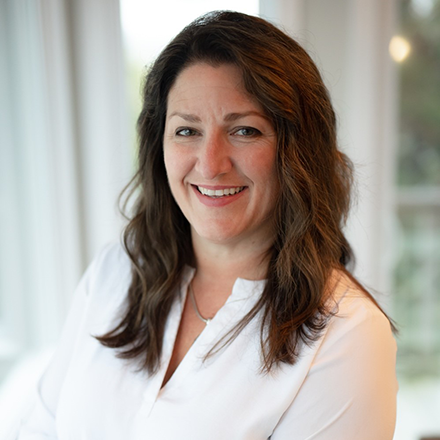

Deborah A. Norris
Dr. Deborah Norris, PhD, is a professor in the Department of Family Studies and Gerontology at Mount Saint Vincent University. Informed through her background in family science, her research program examines the relationship between operational stress and the well-being of military and Veteran Families and the families of public safety personnel.
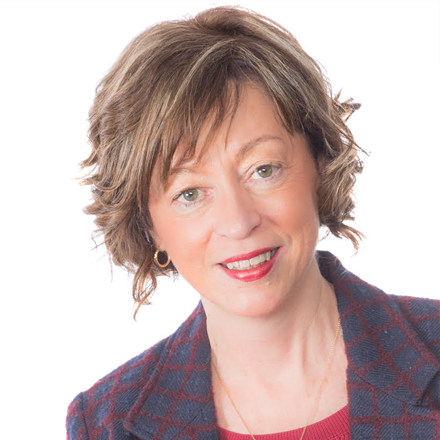


Fardous Hosseiny
Before coming to the Atlas Institute, Fardous was most recently the interim National Chief Executive Officer and the National Director of Research and Public Policy at the Canadian Mental Health Association, National.
He completed a Master of Science with a focus on the neuroscience of addiction and a B.Sc. Honours double major in Health Studies and Neuroscience, both at the University of Toronto.
His research focuses on strategic policy issues related to mental health system transformation, parity legislation, substance use and addiction, and mental health for newcomers and underrepresented groups.
Mr. Hosseiny is also a frequent commentator on these issues for Global News, CBC, the Globe and Mail, and the Toronto Star, among others.
Mr. Hosseiny was a part of the Canadian delegation to the 73rd Session of the United Nations General Assembly and played a role in the development of the first-ever United Nations event dedicated to mental health. He also serves on many national and international committees, including as an executive advisor member of the Global Alliance for Mental Health Advocates (GAMHA) and as past co-chair for the Canadian Alliance for Mental Illness and Mental Health (CAMIMH).


Guy Dallaire
Guy Dallaire was born into a multigenerational military family. He enrolled in the Canadian Armed Forces in 2005, serving in both the Reserve and Regular Force until a medical release in 2020. In 2021, Veterans Affairs Canada recognized his diagnosis of post-traumatic stress disorder (PTSD). Today, Dallaire continues to work for the Department of National Defence as a public servant. He devotes much of his spare time to researching the impacts of multigenerational trauma on adult children of Veterans and first responders. His findings will be published in an upcoming book.


Huf Mullick
Huf Mullick’s interest in the military started as a young boy growing up in Vancouver. He enrolled in the Air Cadet program in the early 1980s and then joined the CAF in 1982 as a Reservist with the Royal Westminster Regiment. His time with the “Westies” was the impetus to join the Regular Force in 1983. Huf served full-time with the Princess Patricia’s Canadian Light Infantry for the next 25 years. His tours of duty included overseas service with North American Treaty Organization and the United Nations. At home, Huf’s various postings included military exercises across Canada, the United States, and numerous postings such as the Canadian Forces Leadership and Recruit School in Saint-Jean-sur-Richelieu, Quebec and the Canadian Forces Recruiting Centre in Vancouver. In 2007, Huf transitioned out of full-time service back into the Reserves and his final duty was as the Regimental Sergeant Major of the British Columbia Regiment. Huf retired in May 2021 after receiving his commission and the Order of Military Merit. He joined the Atlas Institute for Veterans and Families in November 2021 as the Lived Expertise Lead, Veterans.


Jerris Popik
Dr. Helena Hawryluk, PhD, RSW and Jerris Popik, MSW, RSW, are co-founders of Families First: Supports for Occupational Stress Inc. and directors of the National Warrior Kids Programs offered through Wounded Warriors Canada, available to children and youth from military and first responder families impacted by a parental psychological injury.
Dr. Helena Hawryluk and Jerris Popik have spent more than a decade creating a space for the development and provision of meaningful mental health services for Veteran and first responder Families. They believe in critically examining what the research offers in terms of new knowledge on this population and translating this into evidence-informed practice.
Dr. Hawryluk completed her undergraduate degree in psychology at Concordia University, a Bachelor of Social Work from the University of Calgary, followed by her Master of Clinical Social Work and then her PhD with the Faculty of Social Work at the University of Calgary. Dr. Hawryluk was awarded the Wounded Warriors Doctoral Scholarship for her research with youth in military Families impacted by PTSD, post-Afghanistan war.
Jerris Popik received an applied psychology degree from Concordia University and her Master of Clinical Social Work from the University of Calgary. Both have practised as registered social workers for more than 15 years with Families of the Canadian Armed Forces and public safety personnel.




Jason Anderson, RCMP Veteran
Jason Anderson served 20 years in the RCMP and medically retired in 2021 because of his post-traumatic stress disorder (PTSD). He transitioned to a career as a social worker / psychotherapist in Brantford, Ont., where he specializes in working with first responders, public safety personnel and military Veterans dealing with occupational stress injuries and PTSD. He also volunteers with the County of Brant / Brantford Critical Incident Stress Management (CISM) team as a mental health support.
In 2019, following his involvement with a residential treatment program, Jason assisted in the establishment of and functioned as the main facilitator for a peer support group for public safety personnel and military members.
Before his career as a police officer, Jason worked as youth care worker and social worker, providing him with extensive experience in running therapeutic treatment groups.
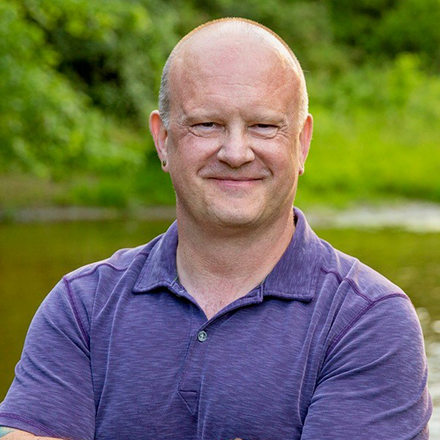


Kathleen Mills



Laryssa Lamrock
Laryssa Lamrock is the National Strategic Advisor for Families at the Atlas Institute for Veterans and Families. She has a unique blend of experiences in nursing and military Family deployment support. In addition, she has extensive knowledge and expertise in the field of peer support as well as lived experience as the spouse of a Veteran living with PTSD. She is also the daughter and mother of military members. Laryssa draws from these experiences as she advocates passionately for, and represents the voices of, military and Veteran Family members.
After 12 rewarding years with the Operational Stress Injury Social Support (OSISS) program, Laryssa believes strongly in the importance of Family involvement in the recovery process. It can improve the prognosis of mental health issues and have positive impacts on Family functioning and wellness. She feels there are many more services and programs that can be developed and made accessible to those supporting those who serve and have served in the Canadian military.
Her work has provided her with numerous outreach opportunities including speaking engagements at the National Conference on PTSD, an appearance before the House of Commons Standing Committee on Veterans Affairs, and at the Canadian Embassy in Washington, D.C. She has also served on a number of committees, including the MacDonald Franklin OSI Research Advisory Council. She is a former member of the National DND-VAC-RCMP Mental Health Advisory Committee and is the co-author of the article “Coping as a spouse of a military Veteran with PTSD during the COVID-19 pandemic” published in the Journal of Military, Veteran and Family Health. Laryssa has also developed and co-facilitated a series of OSI Family workshops with the Parkwood OSI clinic.
Recently her focus has also broadened to include first responders and their families — an impassioned interest as her son is a paramedic. She is driven to help identify the gaps and share lessons learned from the military/Veteran community. What she discovered is that it doesn’t matter what uniform you (or your loved one) wear(s).


Lorraine Brown, Veteran Family Member, Sister
Lorraine Brown has worked in education for more than 27 years in the roles of teacher, vice-principal and principal. Through her lived experience, Lorraine has developed a passion for teaching and writing about equity, diversity and inclusion. She has taught on these subjects at the elementary, secondary and university levels, and has given workshops in the private sector. She believes in giving back and does so by mentoring young women and teachers.
When Lorraine is not spending time with her husband, children, grandchildren and extended family, you will find her in the great outdoors, engaging with Mother Nature through walking, hiking, biking and photography. She also enjoys visits with friends, cooking, baking, meditation, yoga, reading and listening to Motown and jazz music.
Lorraine is the sole caregiver of her “big” brother, a proud yet broken CAF.
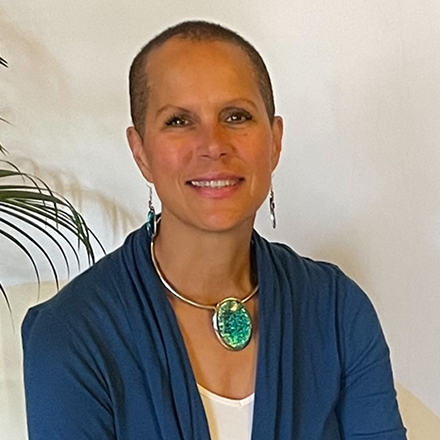


Maude Arsenault
Maude Arsenault joined the Valcartier MFRC team as a Veteran Family Support Worker in 2019. She holds a Bachelor’s degree in social work and began her career in a correctional institution. With her expertise in mental health and strong empathy, Maude focuses on the issue of compassion fatigue among caregivers and developed a workshop on the subject, aimed primarily at spouses of military personnel and Veterans with operational stress injuries. Committed to providing the best services to her clients, Maude has helped develop and strengthen connections with key partners in the community, leading to the implementation of innovative projects to improve services offered to the community.
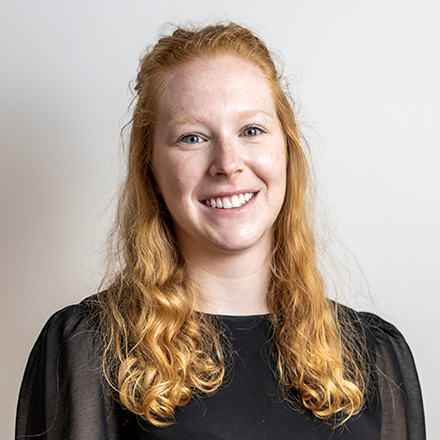

Maya Eichler
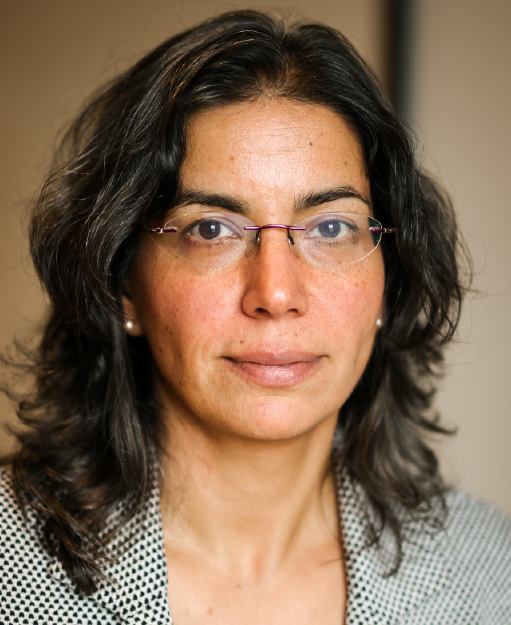

Natalie Champagne
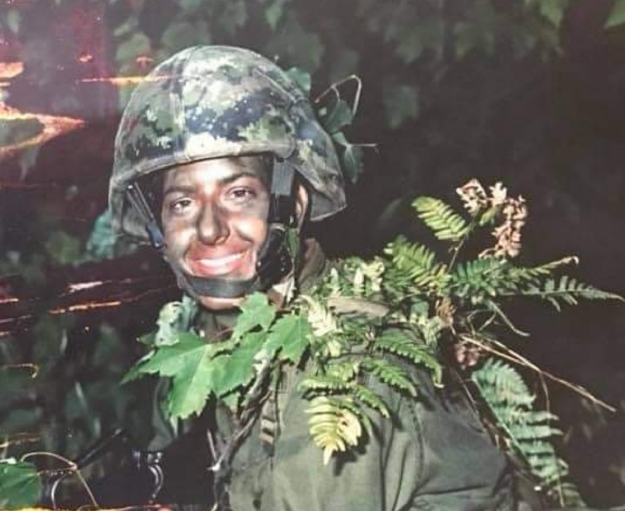

Polliann Maher
Polliann Maher is the Lived Expertise Lead, Families with the Atlas Institute for Veterans and Families. She is the spouse of a Veteran with PTSD and brings more than 20 years of lived experience navigating the mental health system to her role. She has a background in community service work, earned by returning to school through the Veteran Affairs Rehabilitation Services and Vocational Assistance Program in 2009. Polliann spent slightly more than 10 years providing peer support to Family members with the Operational Stress Injury Social Support (OSISS) program as a Family Peer Support Coordinator in southwestern Ontario. This experience allowed her to utilize her own lived experience and her understanding and knowledge of mental health to help peers navigate the systems that can be so overwhelming to many Family members. She was instrumental in the planning and executing of online opportunities for Family members during the pandemic with a psychoeducational webinar series through the OSISS program. Polliann is passionate about educating the Veteran community and sharing her knowledge of the resources that are available to them. She is a strong advocate around changes that encompass the Family, which are many times forgotten or an afterthought.Polliann has also served on several committees, including the MacDonald Franklin OSI Research Advisory Council, and the Board of Directors with the Southwestern Ontario Military Family Resource Centre (MFRC). She is the co-author of the article “Coping as a spouse of a military Veteran with Post-Traumatic Stress Disorder (PTSD) during the COVID-19 pandemic,” published in the Journal of Military, Veteran and Family Health. Polliann has also developed and co-facilitated a series of OSI Family workshops with the Parkwood OSI clinic.
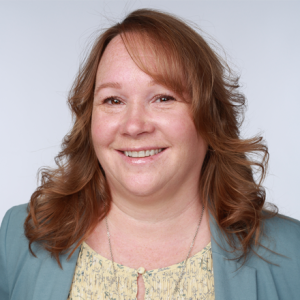

Shauna Mulligan
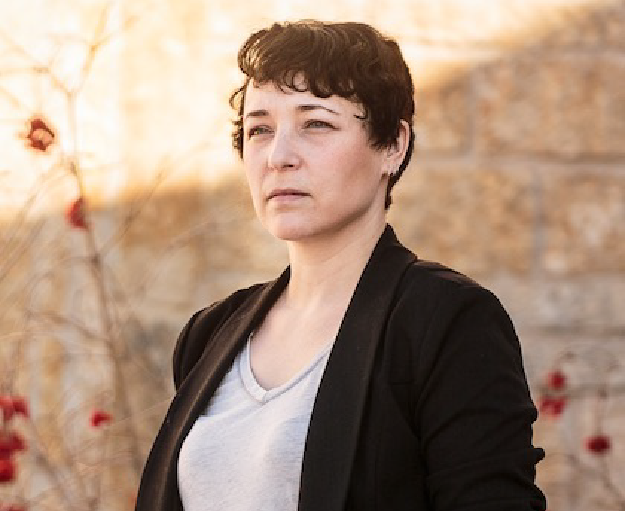

Tammy Findlay
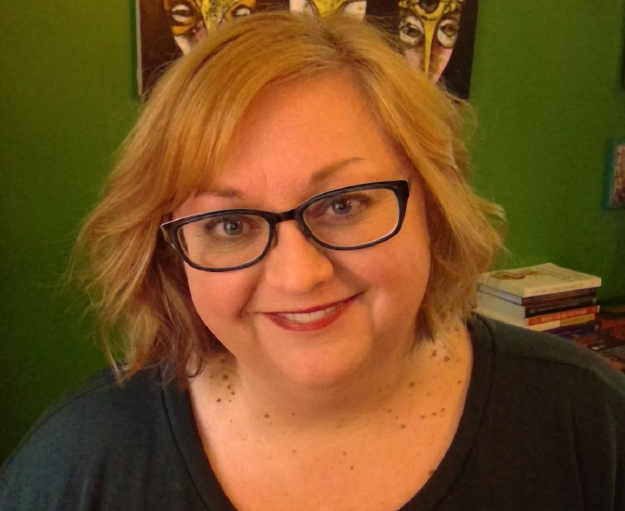

Tim Jeliff, Spouse
Tim Jeliff is a British guy that came to Canada more than 25 years ago (by himself)
He has travelled all over the world and worked/lived/played in the United Kingdom, France and British Columbia. He is settled in Barrie, Ont. where he works and lives.
He enjoys the outdoors, travel, music and mountain biking (his main sports hobby).
He and his spouse have been married for nine years and been together for 13 years. They were together when she retired from the military.
They enjoy a very loving and connected relationship and through the many struggles that PTSD brings, they are still in love and each other’s number one.
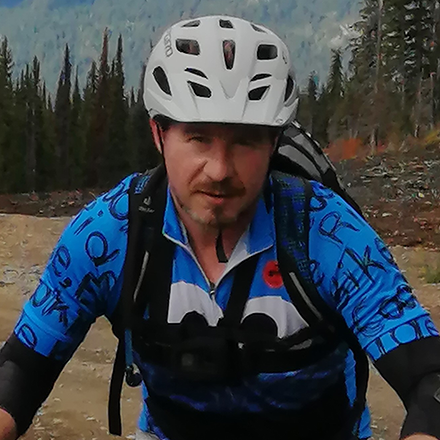


Walter Callaghan
